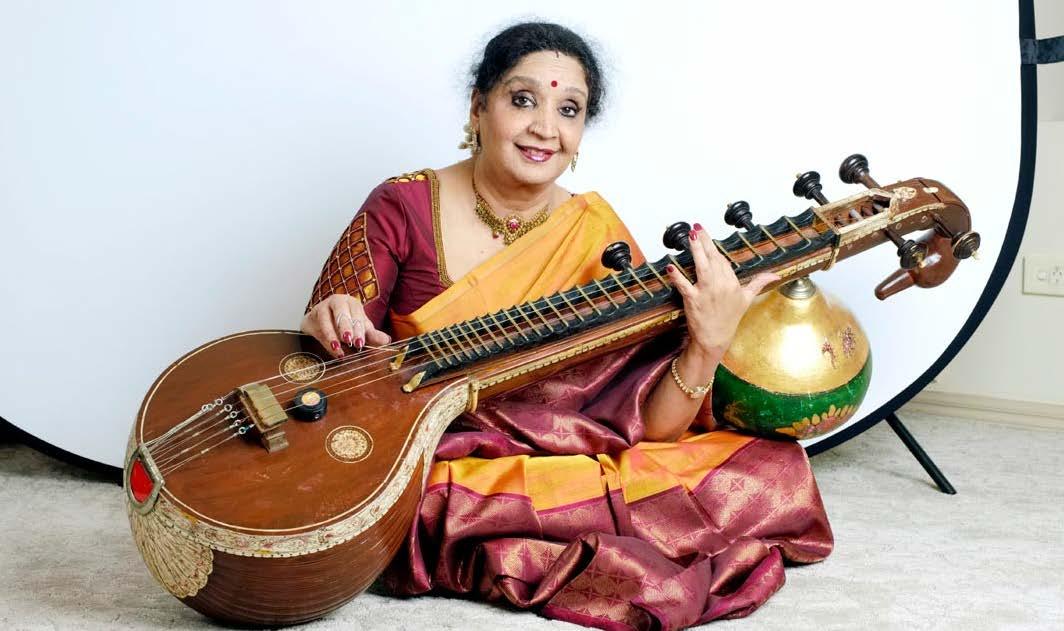
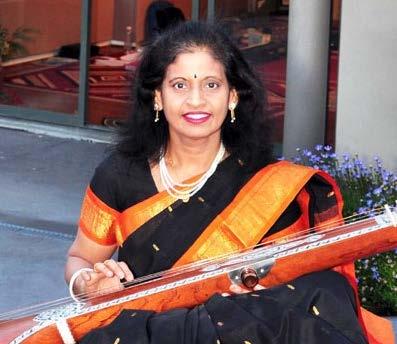



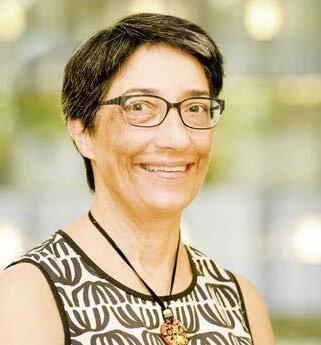


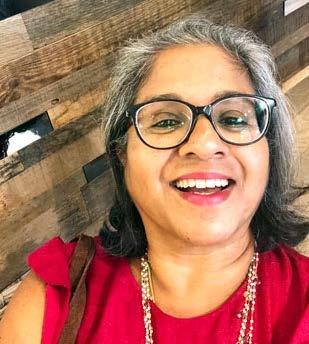

JUNE 2020 1 NATIONAL EDITION QUEEN’S B’DAY HONOURS
OAM Level 24/44 Market St, Sydney 2000 • GPO Box 108, Sydney 2001 • Ph: 18000 15 8 47 Celebrating 25 years and 22 Multicultural Media Awards S YDNEY F R EE Vol. 27 No. 9 JUNE 2020 indianlink.com.au LINKING INDIA WITH AUSTRALIA
Shobha Sekhar,
Prof. Ranjeny Thomas, AM
Dr. Rama Rao, OAM Dr. Santhadevi Parvathy, OAM
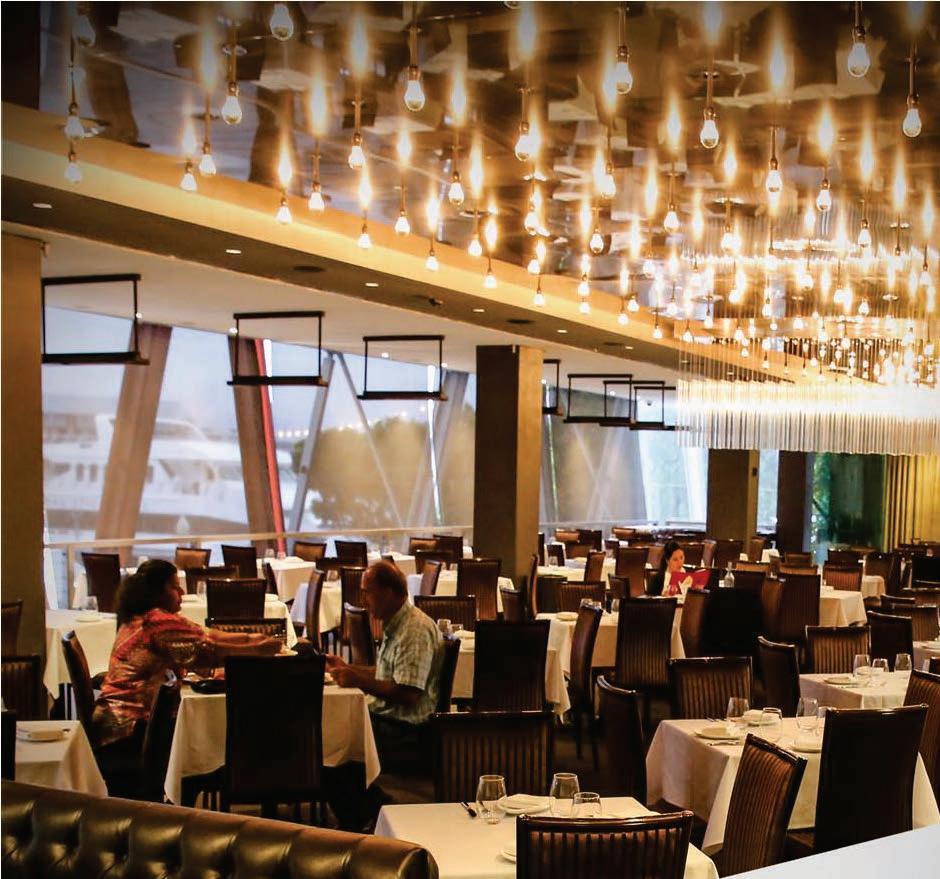
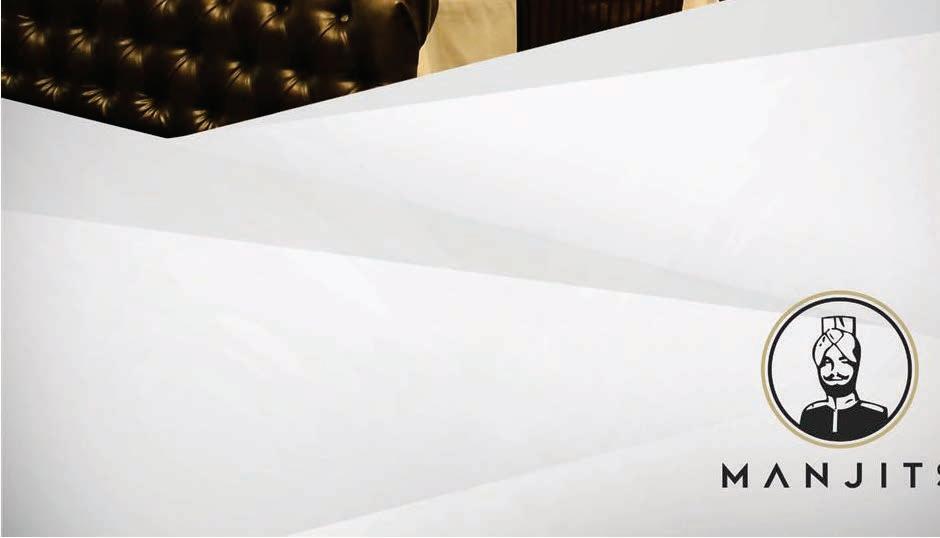


2 JUNE 2020 www.indianlink.com.au
PUBLISHER
Pawan Luthra
EDITOR
Rajni Anand Luthra
SOCIAL MEDIA
Suruchi Sehgal
MELBOURNE COORDINATOR
Preeti Jabbal
CONTRIBUTORS
Carl Buhariwala, Chitra Sudarshan, Ria Lawrence, Ritam Mitra, Harshad Pandharipande, Shania O’Brien, Frankey Fernandes, Hasveen Chahal, Ayush Ayush, Rhea L Nath, Petra O’Neill, Minal Khona
SALES

Charuta Joshi
Indian Link is a monthly newspaper published in English. No material, including advertisements designed by Indian Link, may be reproduced in part or in whole without the written consent of the editor. Opinions carried in Indian Link are those of the writers and not necessarily endorsed by Indian Link. All correspondence should be addressed to:
Two nations strengthen their alliance, beyond all the food references
BY PAWAN LUTH R A
In the recent virtual summit between the Prime Ministers of India and Australia, both Narendra Modi and Scott Morrison did not once mention China, but that country was clearly the third party in the room.
India has China at its doorsteps, with the expansion of its highly contentious One Belt One Road programme in Sri Lanka, Pakistan and other neighbouring countries. India is also at a standoff with China in eastern Ladakh in the Pangong area. At the virtual summit, PM Modi repeatedly stressed the importance of democratic values. “Given that we share democratic values,” he said to Morrison, “it is our sacred responsibility to uphold and protect values for global good like democracy, rule of law, freedom, mutual respect, regard for international institutions and transparency.” These values, he said, were under challenge.
Australia has also been subject to China’s bullying after PM Morrison called for an international inquiry into
the origins of the coronavirus. China did not take too kindly to this initiative and threatened to retaliate, which it has done recently. Starting with high tariffs against Australian imports, to slowing the flow of its international students and most recently, issuing travel warnings to Chinese tourists to Australia, China has said that this is just the tip of the iceberg of their anger.
The signing of the maritime cooperation agreement between the two nations on the sidelines of the summit, too, hinted the shadow of China was always looming. Australia’s Foreign Minister Marise Payne, in an obvious reference to China flexing its muscle in the South China Sea said, “This agreement commits our nations to supporting the rules-based maritime order in the region, founded on respect for the sovereignty of all nations and international law, particularly the UN Convention on the Law of the Sea”.
Both countries mutually accept that India will be important to the concept of a cohesive Indo-Pacific region. The alliance between India, Australia, Japan and US will be important to counteract the growing intransigence in this area. They may well be supported by Vietnam, Philippines, Indonesia and Malaysia, as
China continues its aggressive growth in their neighbourhood.
It is but fait accompli that in a COVID-19 world, the work of diplomacy continues virtually. A good playbook on building on the Australia-India relations has been written by former diplomat Peter Varghese in his report “An India Economic Strategy to 2035” detailing a pathway for the two countries to engage more effectively. The report, now two years and one month old, has never been more relevant, and due to the changing geo-political roles in this part of the world, its missive is now more urgent to follow through and implement.

Both Prime Ministers are enjoying majority support in their countries and both, as evident in the virtual summit, share similar global perspectives and an eagerness to make better alliances. India, for Australia, does bring a heavy weight in to its corner; Australia, for India, does add to its international alliances which can only help. Time for them to cosy up to fight the bullies.
And yes, PM Morrison has promised to cook a khichidi for PM Modi when he visits Australia next. On that agendawe’ve sent him a trendy recipe from our own collection.
JUNE 2020 3 NATIONAL EDITION
I N D IAN L IN K M E D IA GR O UP Level 24/44 Market St, Sydney 2000 G P O Box 108, Sydney 2001
h: 02 9279-2004 Fax: 02 9279-2005
info@indianlink.com.au
P
Email:
EDITORIAL

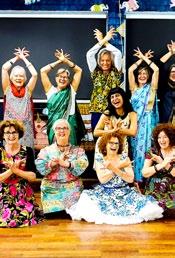
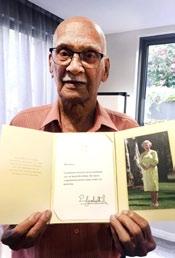

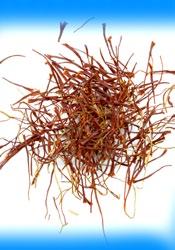
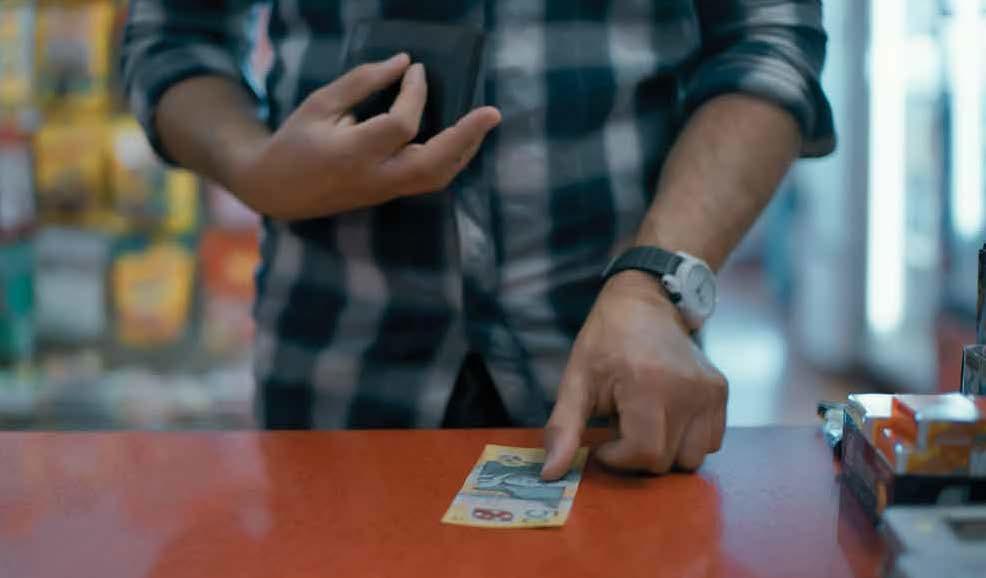


4 JUNE 2020 www.indianlink.com.au Queen’s Birthday Honours 08 c O ve R STOR y 20 23 13 16 SP ec IAL fe ATUR e S 13 OPINION America burning 16 MAINSTREAM Australian saffron 20 DANCE Online dance classes 23 PEOPLE Happy 100th birthday, Ligorio D’Souza! 24 WORK CV checks for migrant workers c ONT e NTS For tips from real ex-smokers visit YOU QUIT. YOU WIN. QUIT THE EXPENSE. You could save over $10,000 a year if you quit smoking.













JUNE 2020 5 NATIONAL EDITION
YOUR SAY
REPATRIATING INDIAN NATIONALS STRANDED IN AUSTRALIA
In extensive coverage over late May and early June, we brought you the very latest in efforts by the Indian Government to y Indians stranded here back home via Air India.
Manan Sehgal wrote: Air India captain quoting Swami Vivekananda’s “Service to mankind is service to god.” Captain Bharadwaj’s fans, raise your hands!
Deepti Vohra Dutta wrote: Great effort. Thanks Commander Sanjay Bharadwaj, Captain Ahluwalia, Vandana Khanna and Satvir Singh.

Sandip Hor wrote: Nice coverage of a historic episode.
Vishwanath Kannadiga wrote: I wish that NRIs recognise the efforts made by Air India. At the same time, I wish that Air India uplift their service standards too.
Sandrick Fernandes wrote: I wish you'll bring stranded seafarers back home as well - they have been in stress for more than 2 months, stranded at sea. Air India charges to get people back home - can't believe this.
Dipak kumar Mistry wrote: Sad (time) for Indians stranded in Australia and particularly those in Adelaide, Brisbane and Perth. Every time ights are announced, they are from either Melbourne or Sydney. We at Adelaide are waiting to get back home to Mumbai. Who will help us?
Sukhi Alipuriya wrote: What about Adelaide to Delhi?


Manisha Bakshi wrote: Are there any more ights scheduled from Delhi to Sydney in the coming times?
Rakhi Mengi Sharma, Bhullar Palwinder Sangha, Veerpalbaljit Gill, Jit Sarb and Anjana Jha wrote: Can you please let us know how to book these ights??
Ven Katrao Paleti wrote: Pls inform how I can register and buy tickets for Hyderabad.
Nideesh Haridas wrote: It's very unfortunate that there is no ight to Tamil Nadu.
Nazish Fatima wrote: What about the Air India ights scheduled for July. Will they still go ahead as previously scheduled?
Vaijayanti Kalkotwar wrote: Not a single ight to Maharashtra?
Sandeep Sabnani wrote: Conversely, lots of Australians are stranded in India - request both governments to arrange more ights both ways.
Veena Joshi wrote: Thank you very much, Indian Government. I reached India safely and crew members were very cooperative A big thanks to all who helped.
Gayathri Ramesh wrote: Please organise a ight from Sydney to Chennai. Chennai airport is now allowing all ights in. We have been stranded here for the past three months.
INDIAN LINK POLLS


Will you feel safe going to the gym when it reopens?

26% Yes. With safety measures. 74% No. Home workouts are best.
SAY IT AGAIN
Happy #WorldBiscuitDay! Which is your favourite biscuit?
26% TimTam, 74% Parle-G


LEADING THE WAY OUT OF COVID-19
PAWAN LUTHRA wrote about the leadership messaging of women leaders in nations that have managed to keep the ongoing pandemic in check.

Padmini Sunderaj wrote: The world women leaders that have been mentioned here are the ones who have been widely appreciated in the Western world. What is required is highlighting the foresight and efforts of women (and men) who don't get the deserved attention in the news here. Can Indian Link do that?
Sharon Bull wrote: All (leaders are) doing well. Everyone country has a different way. Australia and New Zealand both doing well; Veitnam doing great. Chitra Iyer wrote: Please add the Health Minister of Kerala to this list.
Anu Shivram wrote: Whenever I pick up a copy of Indian Link, the rst thing I read is the editorial. Generally, Pawan Luthra's editorials re ect on current affairs with maturity and balance. The editorial on the way out of COVID was very fair and objective. Kudos to Mr. Luthra for highlighting the leadership provided by women across the globe.
The Black Lives Matter movement in America has really allowed me to take a step back and re ect on Australia’s racism issue. It’s about time to educate myself and to support the aboriginal people..


Oneida Mason, Twitter user
SAY IT WITH A SONG
Indian Link Radio presenter EKTA SHARMA asked her listeners on social media: What song does this picture remind you of?
Smriti Aditya wrote: Hari hari vasundhara pe neela neela yeh gagan.
Arvinder Kaur Makkar wrote: Aasmaan ke neechae, hum aaj apnae peechhae, pyaar ka jahaan bassa ke chalae.
Vijesh Khanna and Manisha Belani wrote: Aaj main upar aasman niche, aaj main aage zamana hai pichhe.
Darshita Shah and Rani Ajay Musale wrote: Yeh haseen vadiya, yeh khula aasman.
Hiral Adhyaru, Manisha Belani and Pronoti Pradhan wrote: Neele gagan ke tale, dharti ka pyaar pale.
Veena Sashi wrote: Aasman ke paar shayad aur koi aasma hoga.
Komal Sarkar and Manisha Belani wrote: Neele neele ambar pe, chand jab chaye, pyaar barsaye, humko tarsaye, aisa koi saathi ho, aisa koi premi ho, pyaas dilki bhujhajaye.
Akansha Sharma wrote: Aaj Mausam Beimaan Hai Bada.
Chitra Adhvaryu wrote: Chand chhupa badal mein.
Manisha Belani wrote: Neela aasman so gaya.
Manisha Baviskar wrote: Yeh Sham Mastani.
Poonam Rana Giri wrote: Mausam mastana, dil hai diwana.
Shweta Doke wrote: Yeh mausam ka jadoo haimitwa.
Smriti Aditya wrote: Yeh kaun chitrakaar hai from the lm Boon Jo Ban Gayi Moti.
Sachin N Jain wrote: Neela gaganke tale, mummy ne bhajiye tale.
Imagine calling a protest where coloured people are literally asking not to be killed “self-indulgent”
Tali Aualiitia, ABC Radio Australia

Every death in custody, Indigenous and non-Indigenous, is a tragedy. But the rate of Indigenous deaths in custody, as a proportion of the Indigenous population in Australia, is a scandal.
Calla Wahlquist, The Guardian reporter
6 JUNE 2020 www.indianlink.com.au
SPEAKING AUSTRALIAN
Indian Link Radio presenter SAGAR MEHROTRA asked his listeners on social media: Is there anyone out there who can say something - anything - in an Australian Indigenous language?

Prabhu Kiran wrote: ‘Jurdaa!’ is a lament sort of like ‘Oh God!’ in the Warramunga language spoken in Central Australia. ‘Piliyiangi’ means ‘How are you’. I worked for 7 1/2 years with the First Nations people in the Northern Territory. I picked up many words there.


Sameer Mehrotra wrote: Murru Mittigar is a social organisation in Penrith that helps create a better understanding of Aboriginal culture in the wider community. The words ‘Murru Mittigar’ mean ‘Pathway to friends’.
Sagar Mehrotra wrote: My son Ishan just looked up how to say hello: ‘Kaya’ in the Noongar language; ‘Palya’ in the Pintupi language and ‘Yaama’ in the Gamilaraay language.
Rhea Laxmee Nath wrote: I recently came across the word ngalaya which means "ally" or "friend in battle" in the Dharawal language. An important thing for all of us to be!
Rajni Luthra wrote: There are some Indigenous words that have been adopted into the English language, like ‘corroboree’ which means ‘gathering’. Then there’s ‘cooee’ which I had heard of in regular English usage such as ‘within cooee’ which means ‘within reach’. But on my rst visit to the Blue Mountains nearly 30 years ago, I learnt that it is an Indigenous call-out which is shouted out, as if to ask “Is anyone there?” To my newly arrived Indian self, it sounded like the Hindi “Koi hai??”The name Canberra is also Indigenous – it means ‘meeting place’ in the language Ngunnawal, supposedly spoken by the tribes that came from the region. It is a tting name for the capital of the country.We know the Australian slang ‘Hard yakka’ means ‘hard work’ - I believe the word ‘yakka’ is Indigenous for ‘work’.

Nidhi Mehrotra wrote: I know the word ‘billabong’ means ‘lake’ and ‘cooee’ means ‘come here’.
A PARENT’S REQUEST FOR ONLINE LEARNING

JULIE PAREKH’s son goes to school in Sydney’s eastern suburbs, where COVID-19 has surfaced in two separate colleges. She wrote about concerns for his safety.

Shalini Rajesh wrote: Completely agree. We should be given an option (to send our kids to school or have them homeschool). Why expose our kids and take risks?
Clay Ton wrote: Shalini Rajesh, if you leave the house or have other family over, the risk is far greater than a kid attending school.
Shalini Rajesh replied to Clay Ton: At my place all are working from home except my 12-year-old son. I'm more than happy to keep him home, do online study.
Prathibha Shivashankar wrote: Really don't understand how our health experts made this decision.
Jaswinder Singh wrote: To all parents, please read this and decide for your kids.
Care about black people beyond moments of tragedy.
Ryan Peete, Twitter user
“Black Lives Matter” does not mean “ONLY Black Lives Matter”. It means “Black Lives ALSO Matter” and is a response to the fact that in societies largely controlled by white people (eg: Australia and America), Black lives do seem to matter less..
David C
Simon, writer and artist
CAPTION CONTEST
What’s the chitchat here between Madhuri Dixit and her son Arin?

Raj Saneja wrote: BETA mere DIL ki yeh AARZOO hai, tum DEVDAS ya
KHALNAYAK nahi banana. Inka ANJAAM bahut bura hota hai.
Sunny Rathod wrote: Padh likh ke IAS BIAS bano.
Arix Bishnoi (winning entry) wrote: My son and I don’t believe in nepotism. And FYI don’t forgot to watch him in Student of the Year 3 (Winning entry)
Leyla Nubia wrote: She’s telling people on TV that her son needs a long overdue haircut.
Arora Vijay wrote: Doctor? No way!! You are going to be an actor, you hear me!
Raghu Rules wrote: The next super star is right here beside me.
Aneeta Menon wrote: “Wash your hands and don’t touch your face.”


Arix Bishnoi wrote: He may look like Sanju but he is smart like Dr.Nene.
WHERE IN OZ
This building, constructed in the 1880s, is the rst building in Australia to be awarded UNESCO World Heritage status. We asked you to name the building and the city it is in.

WHERE IN INDIA
Trekker’s delight: we asked you to identify this spot in India. Readers Agasteena Shah-Patel and Bhanu Kothari correctly identi ed it as Kalavanti Durg in Maharashtra.

The black lives matter campaign is not an importation from the USA. Our treatment of Aboriginal people in Australia is a national disgrace..
Glenn Davis, Twitter user
As a black settler in Australia, I acknowledge I’m standing on looted land.
Francis Awaritefe, Twitter
user
Perhaps sit down and actually listen to the pain that you’re hearing here, to truly take it in, and to realise that, sometimes, we might live in the same country, but experience completely different realities.
Nyadol Nyuon, Lawyer
JUNE 2020 7 NATIONAL EDITION
Reader Raj Saneja sent in the correct answer: Royal Exhibition Building Melbourne.
QUEEN’S B’DAY HONOU
TOWARDS A BETTER UNDERSTANDING OF AUTOIMMUNE DISEASES
PROfeSSOR
Ranjeny Thomas, AM
For significant service to medical education and research, and to rheumatology
Uppermost in Prof. Ranjeny Thomas’ mind, as she spoke with Indian Link, was the recent loss of her youngest sister Anna Thomas, well-known Melbourne-based fashion designer. “It makes this AM honour… bittersweet,” she admitted.

Prof. Ranjeny Thomas of the University of Queensland is the Arthritis Queensland Chair of Rheumatology, Translational Research Institute, since 2013 and Diamantina Institute, since 2003. A consultant rheumatologist at Brisbane’s Princess Alexandra Hospital since 1994, she was also Chief Technology Officer and Director of Dendright until last year, a biopharmaceutical company commercialising an immune tolerizing immunotherapy for rheumatoid arthritis.
“As a rheumatologist, I’ve always been fascinated by immunology, specifically autoimmune diseases in which the immune system attacks one’s own body cells,” Prof. Thomas told Indian Link.
Autoimmune diseases are a large cluster of diseases, some 80 in number, that affect a whole range of body parts including blood vessels, joints, skin and connective tissue. Multiple sclerosis, rheumatoid arthritis, irritable bowel syndrome, some forms of diabetes, psoriasis and celiac disease are all
autoimmune diseases.
These disorders are tricky to diagnose because the symptoms can be disguised as other conditions or they could be conditions by themselves, yet Prof. Thomas dismisses the common understanding that ‘it often takes five different doctors over a period of 5 years before you get a diagnosis’.
“Studying the symptoms, signs, blood tests and antibodies specific to the disease, it is easy for an expert to pick up,” she reassured.
Is it true though that autoimmune diseases are on the rise?
“Yes, that’s true for some diseases such as childhood diabetes and irritable bowel diseases”, she revealed. “There are no treatments yet – but there’s promise, with ongoing research. We start in small ways, make clinical trials, continue with these with investment and money, and then come to precision therapies. In treating autoimmune disease, we are specifically trying to turn the immune system off to self-proteins so that the rest of the immune system is left to deal with (non-self proteins).”
Which brings us to COVID-19, also a disease of the immune system.
“COVID proves that we need more immunologists,” Prof. Thomas laughed.
Prof. Thomas’ father came to Australia from Kerala in 1950 to study medicine in Melbourne. He later moved to Perth where he worked as a plastic surgeon. Her mum is Australian.
She herself studied medicine in Perth, specialised in rheumatology and then took a doctorate from the US. She now works in QLD as an academic and medical professional.
Her academic role sees her training younger doctors, and supervising PhD and post-doc research in rheumatology.
“I take great enjoyment in promoting the development of young women who aspire to
GOOD MENTAL HEALTH
Dr. Arumugam
Alagappa
Arumugam, AM
Nadu and seeing a gentleman living on the streets outside his home suffering from a mental health condition. He was intrigued by the ability of a young girl to settle the tensions faced by the gentleman, when adults struggled to understand what to do. Curious to learn more about the condition (which he later learned was Paranoid Schizophrenia) and to support those with mental illnesses, Dr. Arumugam pursued a career in this field to achieve his goal.
After studying Psychiatry at the then Madras Medical College and completing further studies in Bangalore, Dr. Arumugam was considering his first post in the profession. Given the political
a career in this field,” she revealed. “I think it’s important to impart mentorship and I’m very proud that I’m able to do so.”
Acknowledging the big imbalance in STEM worldwide, she noted, “I think it’s partly a confidence thing, partly cultural, where women are told we can’t or shouldn’t do STEM and opt for softer subjects instead. In reality though, there’s no advantage in science to either sex. Instead, we need diversity. Science and technology is so often teamwork, and teamwork thrives on diverse thinking. In my own work, I’ve seen women make fantastic contributions – they have a different way of thinking, dedicated and driven.”
As one of four daughters herself, Dr Thomas was always encouraged to aspire
and to achieve. All four Thomas girls have gone on to highly successful careers (49-year-old Anna Thomas’ eponymous fashion brand has high-profile clients such as politicians and television presenters.)
The Indian links remain strong in Ranjeny’s life. “I do have close ties with my father’s family in Kerala and go back from time to time.”
The Kochi-based Synthite Industries, a world leader in oleoresin extraction, is owned by an uncle.
At work, her lab attracts the best from India, including a young researcher from Manipal currently working to develop an immunotherapy vaccine.
Rajni Anand Luthra
tensions in Tamil Nadu in the late 1960s, he considered three overseas places for work and home. Choosing from the United Kingdom, Canada and Australia, he settled on Australia because of its open migration policy and appreciation of a multicultural society. In addition, Victoria was also on the lookout for qualified psychiatrists given the lack of local supply. After migrating in 1971, and keen to learn the culture of Australians, Dr. Arumugam accepted his first job in the country town of Traralgon. He remembers how warm the locals were and how they admired his qualification. He was keen to help long-stay patients with mental illnesses transition to a community
lifestyle. “My colleagues and I were trying to shift institutional care to individualised care,” he explained to Indian Link . “We were all keen to lower the use of drugs and achieve better outcomes with nonverbal and non-synthetic forms of therapy such as music, art and dance”.
He noted, “Our patients consumed less drugs; an overall 25% reduction in utilisation to achieve the same outcomes.” During his career he rose to become President of the State Employed Psychiatrists Association.
Dr. Arumugam served at the infamous Larundel Psychiatric Hopsital, the Plenty Mental / Psychiatric Hopsital and the Heatherton Hospital and Associated
8 JUNE 2020 www.indianlink.com.au
c O ve R STOR y
Dr. Arumugam Alagappa Arumugam recalls the time when he was growing up as a young boy in a village in Tamil
For significant service to medicine, to psychiatric health care, and to professional groups
ONOURS
ALL THINGS CALSSICAL Shobha Sekhar, OAM
For service to Indian music and dance
Classical Indian music lovers in Melbourne would know Shobha Sekhar well. Her Kalakruti School of Indian Classical Music has trained many young musicians in vocal Carnatic and Veena. Many graduates have gone on to scale great heights in music.

She has organised exquisite musical soirees to innovative concerts, and is an accomplished musician and performer herself. She is the Melbourne correspondent of the respected music journal Sruti; has been the president of FIMDV (Festival of Indian Music and Dance Victoria, the arts wing of the Federation of Indian Associations of Victoria) since 2017; has taught at the Performing and Creative Arts department in Melbourne Polytechnic, and now teaches music at the University of Melbourne.
“I feel chuffed and honoured at being awarded the OAM,” she told Indian Link. “My first reaction was to ask myself, ‘what more can I do now, and better?’
I feel more responsibility has been thrust upon me by this award, and that it is incumbent on me to do more for society. As a musician and a performer, I have always looked forward to feedback from the audience and the public – so this "recognition has bolstered me further".
That the "Australian government has recognised my achievements is an endorsement of me as an artiste, a teacher and performer, and I feel honoured on behalf of the entire Indian music fraternity."
With 2020 being what it is, Shobha claims she has felt increasingly drawn
towards the significance of mental health, recognising that she has been fortunate to have been in a profession such as music which has played a big part in keeping her and others sane in these trying times.
Shobha was steeped in Indian classical music from a young age. She comes from a musical family and has learnt from great Carnatic stalwarts such as D K Jayaraman, D K Pattammal, K S Narayanaswamy and her own mother Mangalam Muthuswamy, a great exponent of the veena.
She was already a performer when she left for Singapore in her 20s, and remembers with particular fondness the five years she spent there. Those were ‘golden years’ for her as both a musician
and a columnist for The Straits Times, a role in which she had the opportunity to meet, interview and rub shoulders with musical giants such as Amjad Ali Khan, Maharajapuram Santhanam and Lata Mangeshkar. She learnt from them the importance of hard work, perseverance, dedication and single mindedness of purpose.
“When I first arrived in Australia 25 years ago, I did not find the environment conducive to Indian classical music,” Shobha recalled. “Many of my students did not come from families who were conversant with the art form, had no background in music, and parents would often ask - after a student had attended a
couple of classes - when their child would be ready for their arangetram!”
It is different now, observed Shobha: there is greater appreciation and understanding of Indian classical music in Melbourne, and her Kalakruti School of Music has grown by leaps and bounds, producing some of the most talented young artistes in our community. She has continued to instruct students via online classes during these tough times, and has tried to keep them motivated.
“I am proud to say my students have taken to it like fish to water, and have wanted to keep going even while I would have liked a break!”
Chitra Sudarshan
Community Services. In addition to stints at other clinics, he was a former examiner and member of the Australia and New Zealand College of Psychiatrists. Interested to educate the future wave of graduates, Dr. Arumugam shared his knowledge in a teaching capacity and was dedicated to innovating new means of treatment for individuals with mental health conditions.
Together with his colleagues who shared similar views in the profession, and driven by a passion for equal opportunity, Dr. Arumugam continued to serve those with mental health conditions. Notable contributions include teaching at both Melbourne University and Monash University
during 1972-1984, achieving Consultant Psychiatrist at the age of 27, hosting music therapy sessions that were screened by the ABC, organising open days at the Psychiatric Hospitals that he worked at to educate the public, teaching children about mental health issues at school, and offering community mental health consultations free of charge in association with local councils.
Dr. Arumugam is proud of the recognition as a recipient of the Queen’s Birthday Honours and hopes to continue supporting social change in relation to individuals with mental health conditions and those deserving of an equal opportunity.
 Carl Buhariwala
Carl Buhariwala
JUNE 2020 9 NATIONAL EDITION
QUEEN’S B’DAY HONOU
and volunteers with the Government’s ‘Scientists in Schools’ program.
‘MUSICAL’ SCIENTIST
Dr. Rama Rao, OAM
For her service to Indian music and dance
Dr. Rama Rao arrived in Australia in February 1983, and sang at a family event two days later: she has not stopped singing since.
Besides being a trained classical musician, she also had a PhD in polymer chemistry from the University of Madras. She remembers to this day her visit to the Australian High Commission in Delhi in 1982, when the consular official, granting her and her husband a permanent resident visa to Australia, exclaimed, “Australia welcomes a musical scientist!”
Rama Rao’s scientific, industrial, philanthropic and musical career developed in tandem in Australia.
She enrolled for a post doctorate program at Monash University, and shortly thereafter established the Krishna Ravali School of Carnatic Music in 1984. She began working for Dulux Paints (where she


MUSIC
worked for 25 years), started a family, and began performing, being one of the first to provide live music for Bharatanatyam performances in Australia.
“My love for both music and science has made it possible for me to give back to the community in many ways,” Rama told Indian Link.
Not only has her Krishna Ravali music school grown exponentially – it now boasts 120 students – Rama has also been president of the Festival of Indian Music
FOR CHARITY
Sivaganga Sahathevan, OAM
For service to the Indian community of Victoria, and to music
Fleeing the civil war in Sri Lanka and then seeking refuge in India, Sivaganga Sahathevan is no stranger to seeking peace through music. With an appreciation for music from an early age, Sivaganga helped spawn an awareness of an existing stream of Indian music in her hometown in Preston as a gift to the Indian community who gave her a sanctuary.
Sivaganga vividly recalls that she was on her way to Darebin City Council in Preston to pay her council rates when she saw a poster advertising the Darebin Music Feast. As she read the poster, she wondered why there was no Indian component. Determined to find out, she talked to a few locals in the area and crossed paths with the producers of the Feast. With her willingness to contribute back to the Indian community at heart, she helped arrange a performance of Carnatic music for the event. That was way back in 1998. Since then, she continues to actively take part in the Feast. From 2001, her
group has had a standalone performance in the programme. “We decided to donate all proceeds to the Starlight Children’s Foundation and this very important partnership has continued ever since,”
Sivaganga told Indian Link as she discussed the breadth of her contribution. “In 2017 we also started performances that raised funds
and Dance Victoria FIMDV for 3 years between 2014 and 2017.
“In my opinion, Melbourne has become increasingly the centre of Indian classical music and dance in Australia,” she mused, adding, “I have enjoyed this incredibly joyful journey with my fellow artistes and students.”
As a scientist, Rama is the Chairperson of the Victorian division of Surface Coatings Association of Australia; is involved in CSIRO’s STEM Program which promotes science in schools,
Being a Saibaba devotee, she lives by the motto ‘the hands that serve are better than lips that pray’ and has been involved in various philanthropic endeavours, such as organising music concerts to raise funds for humanitarian causes such as AMAZE, an organisation shaping the future of autism. “While working with AMAZE, I realised how music can help to improve immensely the lives of those in the autism spectrum,” she revealed.
Rama also manages to put time aside for monthly bhajan sessions and community service with the Monash Lion’s Club.
While reading of Rama Rao’s contributions, one can’t help but think that she has had such a full life: indeed, one wonders how 24 hours in a day have sufficed for all the things she has managed to do.
“The OAM honour has come as a total surprise for me, and I feel both humbled and honoured by it,” she revealed. “I would like to dedicate it to the people who have been a part of this wonderful musical journey with me - my parents, especially my mum mother who introduced me to music (and after whom I have named my music school); my gurus DwaramDoraiswamy of Nellore, and the late Dr S Swaminathan of Chennai; my siblings, my husband and my children who have been supportive of me always; my fellow artistes, and my students and their families.”
Chitra Sudarshan
Chandrabhanu and the Bharatalaya Academy.
“Dr Chandrabhanu gave me my first opening in Melbourne’s world of Indian music and dance, and the Darebin Music Feast gave me the platform to present Indian music to the wider Melbourne community.”
Both enabled her to engage with the community, encourage artists to showcase their talent, and work with groups of people who share a passion for comforting others through music and performance.
“This latest award is for them,” she said with gratitude. “It is also motivation for me to keep going.”
Sivaganga acknowledges the participation and assistance of many organisations in her musical career including the Academy of Mary Immaculate, the Australian Girls Choir, Multicultural Arts Victoria, Vani Fine Arts Society (UK) and Shylar Productions in Chennai. She recognises the incredible devotion of the Taste of India committee, her students, the many families and friends and, very importantly, established Australian and international artists and sponsors.
for the Girls from Oz, a charity that enables indigenous girls from rural and remote Australia to obtain musical education and to help sustain their communities.”
With her efforts and the support from her team, contributions of $37,000 have been passed on to the two charities. Sivaganga is thankful to her team, in particular Dr
Talking of the future, Sivaganga shared that her aim is to develop activities to engage the elders in the community and draw on their experiences and knowledge. She also wants to offer a platform to enable up and coming children and students to express their culture through music and performance.
“You can see that this is a pretty challenging agenda,” she laughed. “However, I believe not only that each person can make a difference, but also that being a leader to a team of dedicated individuals keen to work together, will support the community.”
Carl Buhariwala
10 JUNE 2020 www.indianlink.com.au
c O ve R STOR y
ONOURS
MENTORING OVERSEAS TRAINED DOCTORS
Dr Mulavana Santhadevi Parvathy, OAM
For service to medicine, and to medical education
Dr Mulavana Santhadevi Parvathy is surprised and humbled after receiving the Queen’s birthday honour this year for her contribution to medicine and medical education. “I’m not sure if I deserve this,” she laughs bashfully.
Her impressive list of accomplishments says otherwise.
She has been working with Hunter New
England Local Health District since 1985 as a general practitioner, and since 2000 in the education sector as a senior lecturer, in the discipline of general practice for the University of Newcastle.
In 2006 she became director for the International Medical Graduates Program. As an overseas-trained doctor herself, she considers this one of her great passions. “We look after overseas trained doctors who come here to work with us from around the world,”
COMMUNITY CHAMPION
Lakshman Prasad Alluri, OAM
For service to the Indian community of the Australian Capital Territory
While 2020 may go down for most of us as The Year That Never Was, for Canberra’s Lakshman Prasad Alluri it will be a memorable year.
This year marks milestone anniversaries for at least three of Alluri’s pet community projects, and on top of that, he has received an OAM in this year’s Queen’s birthday honours. It’s lucky times for Lakshman, well-known in Canberra’s Indian community as Lucky.
“I’m elated with the OAM honour,” Lucky told Indian Link. “It comes after 27 years of community work.”

Having arrived in this country in 1993, he took to voluntary work in his community almost immediately. The first of these was the Sri Vishnu Shiva Mandir at Mawson, which marks its 25th anniversary this year. In 1995, Lucky oversaw the inauguration of the temple volunteering as the priest for the ceremony. “Prior to this of course, it was a long process to have the temple established. In 1993, as president of the Mandir Society of Australia, I administered the foundation laying ceremony (Turning of the Sod) by Labor MP Ross Kelly for the construction of the temple. A year later, I helped organise the first havan for the purification
of the idols received from Tirumala temple in Andhra Pradesh India.”
As current Vice-President of the Mandir, it continues to be part and parcel of his community work to this day. This work also sees him sit on the boards of two other Hindu temples in ACT and NSW.
In another role – President of the Canberra India Council – Lucky is leading the not-for-profit in marking its tenth year this year. Launched in 2010, the Council aims to promote interest in and appreciation of Indian and Australian cultures and values. The Council’s flagship event has been the annual ‘India In The
she describes to Indian Link. “We organise orientations for them and ensure that they’re looked after, are mentored, and have all the resources and support they need.”
Since 2013, Dr Parvathy has been the director for the Hospital Skills Program looking after education, mentoring and rendering ongoing support to doctors. Additionally, she has been a foundation member and governance committee member for Workplace based Assessment Program since 2010. This is an innovative programme, founded by her husband Prof Kichu Nair AM, which provides an alternate route for International Medical Graduates to practice in Australia. She continues to work as a GP in her practice.
The Cochin-born MBBS graduate says the most rewarding aspect of her job is working closely with people. “I love working with people. I have been looking after some of my patients for over 30 years now and it is such a privilege to develop these relationships and bonds with people over the years.”

The current climate of global retaliation towards racial injusticeand ethnic discrimination begs the question,has she ever encounteredracism or bias in her professional life?
“In my experience, most people are welcoming and open minded. In the early years I received lots of support from my Australian colleagues, which was invaluable.
Unfortunately, racism exists in every society. It is human nature to be wary of people who are different. As people of colour, we will inevitablyexperienceracismin some form or the other. Often it is subtle, and you are left wondering what just happened.”
She has counsel to combat this. “You’re presumed incompetent unless proven otherwise. At the end of the day, we need to work hard, harder than most people, to prove our worth and capability. Any community that is a minority will experience its share of difficulties and challenges. We need to value ourselves and keep working hard.”
Some advice regarding COVID-19? “This is a new virus and we’re all eagerly waiting for a vaccine. The next few weeks are pivotal for us as they will determine where we’re heading so let’s take responsibility, maintain social distancing and follow the rules especially as the flu season approaches.”
She also has sage advice for young people considering a profession in medicine. “The most important thing, is to do what you love doing. See where your passions lead you even if that takes some time to figure out. Happiness comes from doing what you love.”
With nearly four decades of work and an illustrious career, where does she see herself going from here? “As long as I’m healthy and able to work and my patients want to see me, I will continue to work,” she smiles.
Ria Lawrence
counselling assistance to domestic violence families,” Lucky revealed.
As if these activities do not keep him busy enough, Lucky does his bit for his adopted city in a variety of other roles, volunteering at Floriade, Canberra Day Parade, Christmas Carols at Commonwealth Park, at over 25 events through 2013 during the Centenary Celebration of Canberra, at AFC Asian Cup and Cricket World Cup (CA) in 2014/15 besides a number of cricket clubs across the city, and volunteering with the elderly at Miranjani Village, Weston Creek.
“I’ve also been involved in fund raising activities for Cancer Council Australia, Beyond Blue, ACT Women’s Advocacy Group and the Smith Family Soup Kitchen.”
A seat on the ACT Government Multicultural Advisory Board came soon enough, as well as on various other ACT Government community committees, and a Multicultural Advocate of the Year award.
This year, COVID-19 has kept Lucky involved in an entirely new way.
City’ at the National Multicultural Festival, besides Vaisakhi and Diwali events.
(Lucky also founded the Canberra Telugu Association and Kannada Association of Canberra).
Also this year, Lucky has just finished celebrating the 25th anniversary of the Telugu Vani radio station, which broadcasts Saturday mornings.
“As a community service leader, I’ve been providing services in cultural relations, organising of cultural workshops for children, organising seminars on health and motor skills workshops for seniors, providing
“Since the outbreak of COVID and the clampdown of restrictions, I started a small informal organisational network group between Marie Ball Associates, Vishnu Shiva Mandir Mawson, Canberra India Council Inc, and Canberra Telugu Vaani Inc to provide Indian groceries and fresh fruit and veggies to needy senior citizens, families, frontline workers and international student at ANU/UC. Over 58 people have been receiving these supplies on a weekly basis.”
All this alongside his day job in the public service (in which, Lucky is about to finish his 25th year.)
How does he find the time?
“It’s not a problem,” he smiled. “I’ve worked at the Floriade all day, and gone and danced the garba at night, and thoroughly enjoyed both!”
Rajni Anand Luthra
JUNE 2020 11 NATIONAL EDITION
















12 JUNE 2020 www.indianlink.com.au
America burning
police brutality and countless unfulfilled promises of change by policy makers.
BY RITAM MITRA
Even before the senseless death of George Floyd at the hands of four Minnesotan police officers late last month, an increasingly divided America was already hurtling towards destruction. Though the country is now reeling in the aftermath of a pandemic that has obliterated its economy and claimed the lives over 100,000 of its civilians, the path to the current war raging on America’s streets was forged long ago. Amidst the uncertainty of it all, an increasingly belligerent President Trump inadvertently finds himself in the perfect position to create an autocracy borne from plutocracy - one which he has made no secret of coveting.
Protests and riots against police brutality and racism have now taken place in hundreds of cities across the United States, with demonstrations also being held in other cities around the world, including in Australia. They were sparked by the latest death of an African American man in police custody, but the seeds for these protests have been sown through centuries of discrimination against coloured minorities, compounded by ongoing
Though Trump is certainly not to blame for the systemic racism entrenched in American institutions and public life, it is self-evident that his increasingly inflammatory and plainly racist rhetoric has spurred protestors, even as a pandemic continues to ravage the country. Over the course of his first term, Trump and his allies have single-handedly legitimised the denigration of society and of morality, with regular dog-whistling and race-baiting driving accelerated societal disintegration.

Faced with a leader who has, since his dark inauguration speech, failed to even attempt unifying his starkly divided country, it is no wonder that thousands of protestors continue to roam the streets long past now widely enforced curfews.
Though the protests gained incredible international social media traction, including the viral #blackouttuesday trend, actual change is no nearer. The solution in any true democracy would be for individuals to exercise their right to vote, but this brings us to another problem plaguing the United States: its fundamentally flawed Electoral College system, which itself has dubious roots.
The system effectively values the votes of some individuals more than others, has seen two of the last three presidents (George W. Bush and Donald Trump)
elected without winning the popular vote across the country. In the 2016 election, Hillary Clinton received nearly three million more votes than Donald Trump. It is a failure of democracy where the majority of the population can be left unhappy with an election outcome.
Though the system was ostensibly designed to balance big states against small states (thus ensuring that candidates have to appeal to the entire nation, and not just the large cities), it also has a darker side –it intentionally had a distinct pro-slavery tilt, by ensuring the slave holding South (and consequently slave owners) had extra seats in the college.
Of course, slavery no longer exists in America, but like other deeply-entrenched elements of American life such as the longdebated “right to bear arms” under the Second Amendment to the Constitution, the Electoral College system was devised for a vastly different country to the America of today.
America is not alone in its fight against discrimination. In India, discrimination against dark-skinned people, including blacks, is overt. It is often overlooked that Mahatma Gandhi himself once said black people are “troublesome, very dirty and live like animals”, and wrote that white people in South Africa should be the “predominating race”. Closer to home, Australia’s track record against Indigenous
Australians is abysmal, with 432 Indigenous Australians dying in custody since 1991 alone, with zero convictions.
History lays bare that the global plight of coloured people is endemic and enduring, infinitely more so than a rogue virus. Yet the agility with which the world has responded to the threats posed by COVID-19, while continuing to ignore the cyclical cries of oppressed minorities, proves that change is not a question of ability, but of choice.

Dr Martin Luther King, Jr. once labelled riots as the “language of the unheard”, citing social justice and progress as the only absolute guarantors of riot protection. Concerningly though, while the current chapter of protests may dwindle, there is no end in sight to America’s titanic struggle in finding its new identity.
This makes one thing certain: America is caught in a vicious cycle of pain. This November’s election – though perhaps the most important in modern US history –will not be a circuit-breaker. Regardless of the outcome, the election promises to deepen existing divides and could result in an extreme and dramatic escalation of tensions already bubbling at the surface today.
Trump and his supporters can forget about their dream of making America great again; it will be some time before America is America again.
JUNE 2020 13 NATIONAL EDITION OPINION
As the United States reels from the devastating effects of the ongoing cOvID-19 pandemic and widespread protests against police brutality and systemic racism, its civilians and its increasingly authoritarian government are on a dangerous collision course.
cuppa campaign to help Assam’s tea workers
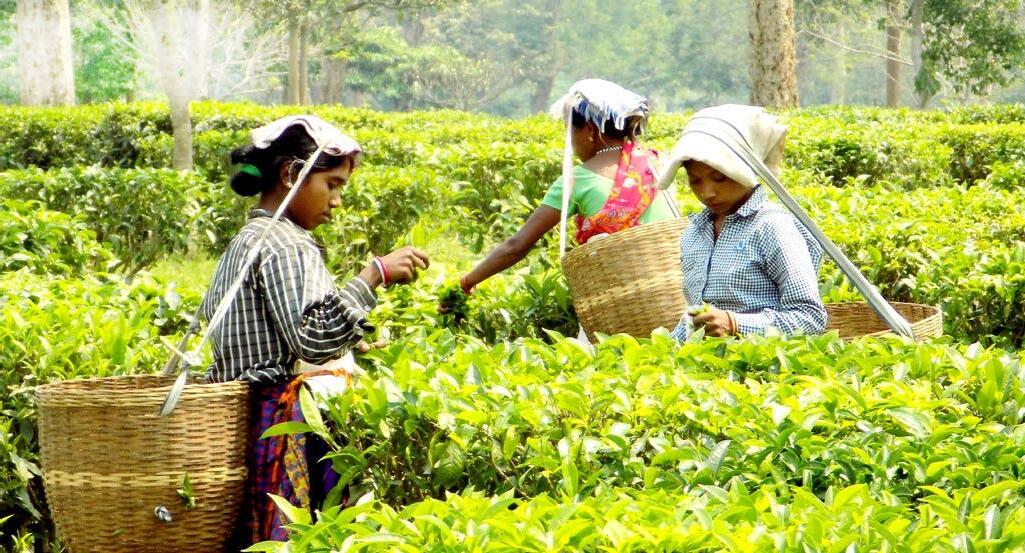 BY HARSHAD PANDHARIPANDE
BY HARSHAD PANDHARIPANDE

You may think nothing about dropping $5.50 for a pot of masala chai at your local café, but this fact might make you set your cup down: the price of that chai is almost twice what a tea leaf picker in Assam might earn for an entire day’s worth of back-breaking work. These low wages perpetuate a cycle of poverty, malnutrition, low levels of literacy and health, and, even more worryingly, human trafficking and modern slavery.
Now, an Australian non-profit organisation wants to change that.
Project Didi Australia, which is dedicated to transforming the lives of women and girls in Nepal at risk or affected by sex trafficking and abuse, launched an initiative called #somethingforslavery on 21 May this year, calling on Australian tea brand T2 to commit to a living wage for tea workers. The date was chosen as it was the first International Tea Day celebrated by the United Nations. The purpose of the day is to “foster collective actions to implement activities in favour of the sustainable production and consumption of tea and raise awareness of its importance in fighting hunger and poverty.”
“We wanted to communicate to the community in Australia that there is a direct link between trafficking, slavery and the products we buy here through global supply chains,” explainedProject Didi
board member Clare Bartram.
For the project, Project Didi has teamed up with Be Slavery Free, which works to prevent, abolish and disrupt modern slavery in Australia and around the world.
Slavery has a clear link to poverty, and tea leaf pickers in Assam are some of the poorest people in India, earning as little as $2.80 a day. A 2019 study by Oxfam found that the workers receive around $0.06 per 100 grams of bagged black tea while T2 sells 100 grams of its Assam black tea for $12. Oxfam also estimates that the workers will need to be paid only $0.15 more to earn living wages.
Bartram explains that the reason for such low wages is that, in India, plantation owners are required under law to also provide them housing, food, health care and childcare.
“The problem is that plantations often inflate the value of these services to justify paying the low wage,” shesaid.
This means the workers face a double whammy. They get paid a poor wage - just
over half the legal minimum wage - and they live in abysmal conditions, which include leaking houses, poor sanitation facilities or no toilets, and substandard or very little food. The plantations have limited resources toobarely 5 per cent of the profit trickles down to them to pay the workers.
“There is a lot of evidence that when workers do not have enough to survive, they are much more susceptible to sending their children away,” Bartram said. This makes the children, especially girls, easy pickings for socalled ‘agents’ who lure them with promises of a better life in the cities, only to sell them to other agents or employers. This is generally sex trafficking or domestic servitude.
However, a good wage can change that. According to Bartram, a living income helps workers send their children to school, avoid debt and protect themselves against traffickers.
As to singling out T2, it is because the company represents a boutique segment of the market.
“T2 consumers are more thoughtful about where their tea has come from and would be more engaged in the campaign,” she elaborated.
The other reason is that T2 is owned by Unilever which, along with two other companies, owns 80 per cent of the global tea market. Unilever sources its tea from company-owned tea plantations and a network of suppliers, which includes over 300 suppliers in Assam alone.
Those who sign up for the campaign through the website or Instagram can directly email T2, host a (virtual) tea party with their family or friends to spread the word about the initiative, or post tea party pictures on social media and tag T2 in it.

According to the campaign page, they are ''asking T2 to commission an independent study of what a living wage would be for tea workers in Assam and develop a plan to raise their wages and living conditions to achieve this within three years.''
Such campaigns have worked in the past. Tea drinkers, by virtue of their numbers, have used their purchasing power to influence tea companies. Bartram cites the example of a customer-driven campaign in the UK due to which six major tea companies, including Unilever, made public a list of their suppliers.
Bartram stressed that this is not a nameand-shame campaign.
''We are asking people to keep buying T2 but also contact them and say 'As a consumer, this issue is really important to me. I love your tea from Assam and I want to make sure that when I buy it, I know the workers are treated fairly,'' she said.
14 JUNE 2020 www.indianlink.com.au SO c IAL JUSTI ce
An Australian NGO has called on tea brand T2 to improve the wage and conditions of Assam’s tea leaf pickers
A virtual tea party in Sydney in aid of #SomethingForSlavery





JUNE 2020 15 NATIONAL EDITION
Little pinch of luxury
How a NSW farm is growing Indian cuisine’s favourite spice, saffron
 BY SHANIA O’BRIEN
BY SHANIA O’BRIEN
Angela and Brendon Argyle have just come out of four weeks of harvesting at their Orange farm. Picking all day from six in the morning to late afternoon, they are thrilled with their output this year - some 300 gms of produce.
It came from 60,000 flowers - all carefully handpicked, stripped and dried.
The Argyles are saffron farmers, their company Argyle Australian Saffron one of a small number of saffron producers in this country.
Saffron (Crocus sativus) is the most expensive spice on the planet. It comes from the thin, long, crimson-coloured stigma of


the purple-hued flower of the low-growing saffron plant. (In the company logo, the ‘y’ in ‘Argyle’ is a y-shaped thread of saffron).


“We pick the flowers just as they start to open,” Angela Argyle describes. “We don’t want them to be in the sun for too long. Around 240 flower stigmas make up our signature one-gram jar of premium saffron. It is potent enough to flavour at least fifteen family-sized dishes.”
It is as they say: no matter how subtly you attempt to use it, the alluring scent of saffron always shines through. Not only for flavour, saffron is also known for its healing quality. Finally, India cuisine’s cherished kesar has made its way Down Under.
The bushfires early on notwithstanding, it’s been ‘perfect saffron weather’ this year, Angela reveals – a bit of rain, cold nights and sunshiny mornings. The flowers have been plump, including in many cases, “5-stigma beauties”.
16 JUNE 2020 www.indianlink.com.au M AINSTR e AM
Photos: Argyle Australian Saffron
And even though all the flowers have been picked for this season, Angela is still out in the paddock early mornings in the one-degree frost.
“We are now tending the plants daily by weeding and watering so that the corms can grow and multiply under the soil,” she says, caressing the leaves. “Many people have asked to buy the corms (the rounded underground plant stem) so they can grow their own saffron. These will be available in November. We’ll spend the months keeping the mounds healthy.”
Now in their fifth year, having survived the bushfires, they were looking forward for the first time to have pickers to help them. When the pandemic meant that the usual help of travellers and backpackers was no longer available, the Argyles picked the whole crop themselves.
“The process includes individually plucking all the flowers by hand before the sun comes up, carefully drying them, and then extracting the stigma. The process can take up to six weeks to complete, as there were over fifty thousand corms underground. Corms also have to be dug up and replanted every four years because they multiply themselves.”
Angela and Brendon first started growing saffron in 2017, after leaving their corporate jobs in Sydney to move to Orange in regional NSW.

“We purchased five thousand corms of saffron to test the soil and environment, with each corm costing approximately $1.20 to $1.50,” Angela tells Indian Link.

“The saffron market in Australia boomed quickly after, with more Australians looking for something unique and unusual to cook with.”
Orange is the perfect place to grow saffron, Angela says, because of its cold winters, hot, dry summers, and free draining soil. (Little did they know growing kesar in a city named Orange was clever wordplay on India’s beloved spice!)
Very soon, the Argyles invested in almost thirty thousand corms of saffron to plant and grow. From a commercial point of view, Argyle calls saffron ‘the perfect spice.’ If stored in a cool, dark cabin in air-tight
containers, it will last indefinitely; hence it won’t go stale if it doesn’t sell immediately.
“The domestic market for the spice has boomed in the aftermath of the pandemic and social isolation,” Angela reveals. “Now, people are looking for new recipes to try more than ever. They are experimenting with their food and demanding more Australian products.”
One of the largest pre-COVID-19 challenges was that imported saffron from European countries was much cheaper because of cheaper labour available – and because the saffron was unregulated. “It’s possible that the product was tarnished, or simply a facsimile. But now Australians are demanding local, safe products that have not been imported. Customers want products from producers they know and trust, high quality saffron that has been grown in places they recognise.”
Angela Argyle makes an argument for Australian saffron to be amongst the best in


the world, despite it being a relatively new product. Tasmania is the biggest producer though, producing and selling several kilograms of saffron a year. The Argyle farm is already close to selling out the 300 grams it produced this year.
Well-known as the ‘prima donna’ of the spices - just a pinch of saffron is required to completely elevate a dish. As a dried ingredient, it needs water (or warm milk) to draw out its aromatics. It is used for both food colouring and flavouring in our own cuisine, elevating our desserts as well as elite meat and rice preparations. Across the world, it finds use in risottos, paellas, teas and cakes (and frequently in medication for women’s ailments and in beauty products like facial serums).
The Argyles themselves use it multiple times a week in different recipes, putting it in cheesecakes, cookies, Turkish delight, crème brulees, apple crumble, ice cream, lamingtons, scrolls, scones, bagels, pumpkin mash, and once, even in a saag dish.
Angela commends it for its health benefits and excellent taste, explaining that her children too love the taste of the spice. It comes as no surprise, that one of her daughters is named ‘Saffron’.
 With Rajni Anand Luthra and Rhea L Nath
With Rajni Anand Luthra and Rhea L Nath
JUNE 2020 17 NATIONAL EDITION
Little did the Argyles know growing kesar in a city named Orange was clever wordplay on India’s beloved spice!
Uttarakhand to produce Merino wool
India’s mountainous state of Uttarakhand will soon spin out high-quality Australian sheep wool, to cater to India’s textile industry which so far has relied heavily on the global market.
A recent test report of the new wool quality compiled by the state’s animal husbandry department corroborated that its quality is similar to what is sourced from the famed Merino sheep in Australia.
“We imported Australian Merino sheep last year and the purebred yielded the same quality and this month the quantity of wool in Uttarakhand as in Australia,” Dr R Meenakshi Sundaram, Secretary of the state’s Animal Husbandry Department, said recently.
The average fibre diameter is a very impressive 16.88 microns, which is the most sought after by the textile industry across the world, Sundaram added.
Under the national livestock scheme last year, over 250 Merino sheep valued at Rs 8.5 crore (nearly A$ 1.7 million), are housed at the Government Sheep Breeding Farm in Ghansali, Tehri (Garhwal district) for breeding and improving the quality of wool.
The importance of the development can be implied from the data that the Indian textile industry imports 8000 MT – valued over Rs 2,000 crore – of fine wool from the global market, including Australia. “With very focused breeding programs for the next seven years in Uttarakhand by linking it with the integrated livelihood projects, we can produce almost 50 % of the total requirement of the textile industry in India,” said Sundaram.
At the sheep farm, high-quality germ plasm has been made available to the breeders through the use of modern artificial insemination in sheep and embryo transfer technology. The state government is aiming to offer sheep farming as a sustainable livelihood opportunity to the migrant population which has returned to Uttarakhand due to the COVID-19 outbreak.
Back in early 2019, the Indian government had approved funds under the National Livestock Mission, to three states –Uttarakhand, Himachal Pradesh and Jammu & Kashmir – for transporting the Merino breed of sheep from Australia.
In April 2019, 40 male and 200 female sheep formed the first consignment out of Australia. They were quarantined at both ends of their journey.
The high-quality Australian breed of sheep will be used for pure line and cross-breeding programmes under a well laid out breeding plan spread over five years. The sheep will be reared in the farm for two generations. From the third generation on, they will be given to farmers with a clause that the pure blood breeding should not exceed 75% of the population.
The State government aims to increase high quality wool productivity from the current 558 metric tonnes to over 1,000 metric tonnes. It will also help people in mountainous regions of the state to continue to stay in their villages and engage in sheep breeding as a sustainable economic activity.
Dubai NRI sponsors ‘gharwapasi’ flights for stranded Indians
With many Indian migrants stranded abroad during the pandemic, one Dubai-based NRI has taken steps to send them back to their motherland. Known as UAE’s ‘Masala King’, Dhananjay M. Datar has rushed to the aid of thousands of desperate Indians queuing up outside the Indian Consulate, hoping for a ticket back home.
For many, India is now virtually the last resort as they have been thrown out of their rented homes and even forced to spend nights on the roads, some having lost their jobs and been rendered practically penniless.
“There are many pregnant women, children, tourists and others on short-term visas who have been stranded here. So far, I have organized travel for over 3,000 people to Kerala, Chennai, Delhi, Hyderabad, Jaipur, Lucknow, Goa, Chandigarh,” the 56-year-old businessman confirmed.
The head of the reputed Al-Adil Trading LLC Group in the UAE has sponsored the tickets of over 1,000 Indians so far, while the others had booked in advance or possessed return tickets which came in handy.
As around 60,000 of these travellers were from Mumbai and Maharashtra, Datar reached out to Chief Minister Uddhav
Thackeray. The CM responded promptly by writing to the Centre to permit the emergency evacuation. Datar hopes, with Thackeray’s personal intervention, that flights to Mumbai will be permitted soon under the Vande Bharat Mission.
All those in dire need of repatriation are screened, undergo a mandatory Covid-19 test borne by Al-Adil Group, and complete all other formalities before they are cleared for flights, he said.
This is where Indian Consul-General Vipul extended a helping hand to send home his blue and white-collared countrymen.
“We have already sent a dozen flights to India, repatriating over 3,000 people. The efforts of Datar come as a breath of fresh air in these times of masked existence. Support by way of Al-Adil Group sponsoring air tickets and conducting free Covid-19 tests is welcome,” said diplomat Vipul.
Before boarding a flight, one Indian was in tears: “I lost my job and got no pay for two months… I had no money for the air ticket, but now I am returning home.”
Another Indian and his 32-weeks pregnant wife were among the most desperate to return as she could deliver anytime and he wanted the child to be born in India, and he was luckily selected.
However, the award-winning entrepreneur Datar rests easy on the laurels he is earning for his humanitarian services.
Dubai’s Masala King & Al-Adil Trading LLC Group head Dhananjay M. Datar gives tickets to a stranded Indian couple.
“As a fellow Indian, concerned with the plight of those stranded here, I am simply doing my duty, along with the Indian Consulate and Air India. Many have run out of resources, so we are trying to ensure they return home as early as possible,” Datar said.
With nearly 16 daily flights from the UAE, Datar describes the Kerala government as “very aggressive” to bring back Keralites. In the UAE, nearly 65 percent of the workforce is Indian and 90 per cent businesses are owned or run by Indians.
The Al-Adil Group is the leading manufacturer and distributor of Indian foods and non-food items, with 34 outlets selling the ‘Peacock’ brand in the Arab world and India.
Escalators are marked for social distancing at a mall in New Delhi as India prepares to reopen.

Restaurants, shopping malls and places of worship are now open in most states after a two-month lockdown, even as the country continues to witness a worrying rise in new coronavirus infections.
The entrepreneur, who rose from humble beginnings, ranks among the richest Indian NRIs, and helps Indian farmers by eliminating middlemen in procuring his requirements to ensure a best deal for them.
Javed Akhtar becomes first Indian to win Richard Dawkins Award
Poet, lyricist and writer Javed Akhtar has become the first Indian to win the prestigious Richard Dawkins Award for advancing human progress and humanist values, critical thinking, and proclaiming the values of secularism. Previous recipients include English-American philosopher and writer Christopher Hitchens, American comedian-political commentator Bill Maher, and English comedian Ricky Gervais.
According to the Centre for Inquiry (CFI), Akhtar was presented the award as a “distinguished individual from the worlds of science, scholarship, education, or entertainment, who publicly proclaims the values of secularism and rationalism, upholding scientific truth wherever it may lead.” The award has been presented since 2003, named after evolutionary biologist Richard Dawkins.
Akhtar has been known for his strong views on politics, art, culture, and religion in India, often drawing fierce criticism on social media for his opinions on religious fundamentalism. The 75-year-old writer believes this win will convey to Indians that they should continue to speak their mind, regardless of disapproval.
“This win will tell the world that there are people in India who express views which are sometimes not popular. Democracy has given us a gift, and we will always protect it,” he said.
His wife, veteran actor Shabana Azmi, noted that Dawkins is a hero for Akhtar, making the award even more special.
“I know what a hero Richard Dawkins has been for Javed. The award gains all the more significance because in today’s time when secularism is being attacked by religious fundamentalists of all hues, this award comes as a validation of Javed’s long service to rational thinking,” Azmi said.
Bollywood stars like Anil Kapoor and Dia Mirza took to Twitter to congratulate the lyricist on this proud moment for the country.
“Knowing that Richard Dawkins has been your hero since you read ‘The Selfish Gene’, the prestigious Richard Dawkins Award must be extra special for you! It’s a truly incredible honour! Congratulations!” Kapoor tweeted.
Facebook, Instagram unblock #sikh on platforms after three months
After their teams inaccurately blocked the hashtag in March, Facebook and Instagram have now unblocked #sikh from their platforms after three months.
Instagram’s PR team put out on a statement acknowledging the mistake.
“This is an incredibly important, painful time for the Sikh community. We designed
18 JUNE 2020 www.indianlink.com.au INDIAN N e WS
Photo: AP
hashtags to allow people to come together and share with one another. It's never our intention to silence the voices of this community, we are taking the necessary steps so this doesn't happen again,” Instagram said on their Twitter handle.
They added that they only became aware of the blocked hashtag in June following feedback from the community and apologised for the mistake.
Twitter users demanded more explanations as to why the hashtag was blocked in the first place, with related hashtags like #sikhism restricted as well.
“We won't be censored. The fact that this happened in the first place says a lot about Facebook and Instagram. #sikh,” said one user.
“There needs to be a follow up to this tweet. It is incredibly important that there is an explanation to this,” demanded another user.
According to a report in technology blog Engadget, this is the second time in a week that Instagram has acknowledged mistakenly preventing users from tagging a specific hashtag. Earlier, some users reported that they could not post or interact with the #blacklivesmatter hashtag.
The company said it was able to address the issue, and “reduce” the number of users who could not message using the hashtag, said the report.
Google pulls down Indian app that ‘removes Chinese apps’
Developed by an Indian start-up, a new app called ‘Remove China Apps’ has been removed from the Play Store for violating its ‘Deceptive Behavior Policy’. The app crossed 5 million downloads in May and gained popularity amid growing anti-China sentiment.
According to Sameer Samat, Vice President of Android and Google Play, they suspended the app for violating the policy of apps encouraging or incentivising users into “removing or disabling third-party apps or modifying device settings or features unless it is part of a verifiable security service".
“This is a longstanding rule designed to ensure a healthy, competitive environment where developers can succeed based upon design and innovation. When apps are allowed to specifically target other apps, it can lead to behaviour that we believe is not in the best interest of our community of developers and consumers,”Samat said.
‘Remove China Apps’ ranked #1 in India’s Android store for two days prior to its removal. In Australia, it had risen to #5 among Android apps. It was intended to scan phones for apps of Chinese origin and display a list to its users for uninstallation.
The app claimed to utilise market research to identify an app’s country of origin. It also collected ser information such as device model, language settings, and app-specific information. Some popular apps flagged by ‘Remove China Apps’ included social media platform TikTok, games like PUBG Mobile and Clash of Kings, and online shopping app Shein.
With growing tension between India and China over Himalayan border disputes, many Indian celebrities backed the idea of deleting Chinese apps. At the time, BJP spokeswoman Nupur Sharma said it was “great to see concerned citizens setting an example.”

Hotel chain Taj tops list of India’s strongest brands
In a new report by the world’s leading independent brand valuation consultancy, Indian Hotels’ iconic brand Taj has topped the list of India’s strongest brands across all sectors. Brand Finance’s annual report values the brands of thousands of companies on a variety of factors like sustainability, margins, marketing investment, and familiarity.
The recognition comes on the back of Indian Hotels’ ‘Aspiration 2022’ of becoming South Asia’s most iconic and profitable hospitality company.
“Our unique service philosophy, which we refer to as ‘Tajness’, emanates from the warmth and caring Taj has stood for over a century. We remain confident of being able to carry the trust of our guests, employees and all our stakeholders with an even stronger commitment,” said Puneet Chhatwal, MD & CEO of Indian Hotels Company.
As per the 2020 report, Indian Hotels’ parent company, the Tata Group, have broken the $20 billion brand value mark for the first time despite the coronavirus pandemic’s severe economic consequences globally.
“The sheer size and diversity of Tata Group could mean that it emerges from the COVID-19 pandemic, relatively speaking, unscathed. Despite citing considerable difficulties in the current climate and warnings of a significant downturn in profits for some of its businesses – namely, Tata Steel and Tata Motors – the Group will hope that the stability and strength of the TCS and Tata Consumer Products Ltd brands will offset any damage to other arms of the Group,” commented Savio D’Souza, Director of Brand Finance.
Other big names in the list of India’s top 10 brands were LIC, Reliance, Infosys, State Bank of India, HDFC Bank, Mahindra Group, Indian Oil, HCL, and Airtel respectively.
Indian priests wary of sanitisers due to its alcohol content
Indian priests in Uttar Pradesh are unhappy with the government’s insistence on using alcohol-based sanitisers in temple premises. Shrines such as Iskcon, MukutMukharvind, and Shri Rang Nath Ji, have decided not to open their doors to the public due to the government's directions for mandatory use of alcohol-based sanitisers.
“The temple committee has decided not to open the temple for public as we will not use alcohol-based sanitizers on the premises, which is mandatory as per guidelines. Alcohol is prohibited in the temple and we cannot allow alcohol-based sanitizers. However, we have put up LED screens that will allow darshan for the devotees,” explained Ganesh Pehalwan of the MukutMukharvind temple. Instead, temples say they would prefer hand washing basins with soaps to maintain hygiene.
Meanwhile, Mathura District Magistrate Sarvagya Ram Mishra held a meeting with managements of several temples and apprised them about the recent guidelines prepared by state government for reopening of religious places across the state. He also informed that all steps would be taken for effective crowd management.
As per government guidelines, six-feet distance and wearing masks is mandatory. Additional rules include no offerings, no touching idols or books, and removing footwear in visitor’s cars instead of outside the temple. They’ve also asked devotees to bring their own prayer mats.
Saurabh Das from International Society for Krishna Consciousness (ISKCON) said that they will open the temple for public after June 15 as they need to train the security staff with the latest guidelines and make adequate arrangements inside the premises.
In Indore, sanitisation of temples went ahead without the use of any alcohol. "Sanitisation has been done without using alcohol-based sanitisers given the sanctity of the temple,” explained Indore MP Shankar Lalwani.
The state government has yet to comment on these developments.
Indian-American man shelters #BlackLivesMatter demonstrators amid Washington curfew
Around 70 demonstrators were housed by Indian-Americanbusinessman Rahul Dubeyafter breaking Washington’s 7 PM curfew and trying to escape pepper spray and tear gas attacks from the police. He sheltered them in all three floors of his home till 6 AM the next day when curfew was lifted.
The demonstrators had gathered at a Black Lives Matter march on 1 June to protest the death of 46-year-old AfricanAmerican George Floyd due to police brutality. After they were boxed in by the police who tried to arrest them for violating curfew, Dubey swung his doors open.
One of the demonstrators, who only identified themselves as Meka, tweeted that police "shot mace at peaceful protesters in a residential neighbourhood" and that Dubey "gave us business cards in case they try to say we broke in.”
Another demonstrator, 28-year-old Aaron Whitten who was among the group at Dubey’s home, described the scenes as chaotic, with the police swinging batons and attempting to arrest protesters before Dubey took them in. After hours passed and everyone settled in the house, Dubey reportedly ordered pizza and slid a slice of pizza to the policeman stationed outside.
“When I saw that tsunami of people rushing through my doorway, I didn’tsee any colour for that moment, I just saw people. I didn’t see them as black, white, Latin or Hispanic,” Dubey explained.
Raised in Detroit, the 44-year-old businessman moved to the US in the late 1960s though he still has extended family in Gorakhpur, Uttar Pradesh. Asked if he’s afraid of backlash, Dubey stated: “I picked up 70 new family members, so I feel pretty strong.”
On 2 June, the morning after the incident, Dubey was met with applause from the neighbourhood for his commendable actions.
IANS
JUNE 2020 19 NATIONAL EDITION
Indian Prime Minister Narendra Modi speaks with Australian Prime Minister Scott Morrison via video conference at the India-Australia Virtual Leaders Summit in New Delhi, India, 04 June 2020.
Photo: AP
LIVING ROOM’S GOT TALENT
pursuit of their passion.
BY PREETI JABBAL
'If you cannot reach dance, we will make sure that dance reaches you’ claims the new promo for Bollywood Dance School Australia.
When the COVID pandemic hit the world and their classes in Australia, Canada, UK and India got affected with lockdowns, the school decided to continue the joy of dance through their new programme they’re calling Dance Digital.

According to Darshan Pawar, Manager of the Sydney-based Bollywood Dance School Australia, this has proved to be a blessing for more than 1500 students worldwide, that can now participate through Dance Digital. It was challenging to begin with, as the teachers and students had to get used to digital engagement, but it did not take them long to get into the groove.
“Our students have adapted very well to the Zoom sessions,” Darshan told Indian Link. “We constantly receive positive feedback on how much they enjoy the online classes and how dancing alleviates their stress and keeps them fit.”

The ‘new normal’ for dance schools is getting people to warm up to dancing in their own living rooms.
Jaya Karan of Melbourne’s Studio J has a similar experience. According to her their
online sessions commenced, reactively, around the initial phase of lockdowns in Victoria. With the help of her husband, a software developer, Jaya invested in a webcam and started online sessions. Her students and instructors came on board with great enthusiasm with nearly 70% taking up the option to learn online.
“I couldn’t have done this without the support and cooperation of our instructors and students,” shared Jaya. “Currently some 170 students participate in our sessions and the response has been very positive. Over time we have continued to refine the process.”
According to her the online sessions have a wider reach and attract a larger audience but they will never replace

the traditional in person learning. They can, however, complement the studio sessions and present opportunities for an alternative revenue stream.
“Our classes have been popular and get sold out quickly,” Jaya revealed. “We’ve had to sometimes refuse students due to limited space and number restrictions. However with online classes anyone can join us from their living rooms from any part of the world. The visibility and exposure is enormous and there is no geographical limit to who can learn from us.”
The benefits of online classes are undeniable as they offer stability and continuity to existing students and maintain a sense of normalcy and routine, keeping them connected and happy in
This was certainly the case for Odissi exponent Dr Sam Goraya and his two talented guests from India. The trio were ahead of the curve in their move to the online portal. From a tentative step into the virtual platform to receiving over 10,000 views, their dance progress has been sharp and focussed.
The complete clamping of borders during COVID-19 adversely affected Samir and Santosh, two young dancers from India who were left stranded in Melbourne during their recent tour to perform an Odissi dance creation called Kundalini The Awakening.
Samir and Santosh are renowned Indian classical dancers from the Rudrakshya

20 JUNE 2020 www.indianlink.com.au DAN C E
Studio J
Studio J
Sam Goarya’s Kundalini
TALENT
Foundation dance school, Odisha. Sam, who lives in Melbourne, offered to host them till they could return and his partner Zlatko Varenina suggested the idea of taking their show online.

With the support of multiple technologies, they started Prarthna, a series of live-streamed short performances to wish for peace in the world. A GoFundMe page has also been created to seek donations for the stranded artists and help with their visa extensions, medical tests, travel tickets and other expenses (www.samgoraya.com).
According to Sam they rehearse from 10.30 am to 2.30 pm and again from 6 pm to 10 pm everyday, to bring the synchronised Odissi repertoire to



their online audience. The 30-minute performance is conducted in full costume and makeup in front of a simple yet effective backdrop in Sam’s living room.

“I have never worked so hard on my performances before,” Sam told Indian Link.
“Initially we thought it was just a few of our friends and families watching, but soon we realised that people around the globe are connecting and enjoying the dances,based on the overwhelmingly positive feedback we receive,” he shared happily.

Sam, who has three decades of stage experience, confessed that he never imagined how quickly and effectively he could spread his art through the internet. This will be the way

forward, he feels.
Darshan Pawar is similarly excited about future online options, especially after a recent success. “In a major event, we’ve just collaborated with Sony Music India and our dance schools in Australia, UK and Canada. In this exercise we taught a dance routine to the hit song Genda Phool by Indian rapper Badshah.” He mused, “We would love to reach out to various dance communities across the globe for more such special collaborations.”
With tours cancelled and rehearsal studios closed, this happy-at-home movement has been successful in many ways: digital dance making may become an artistic genre in itself.
JUNE 2020 21 NATIONAL EDITION
Thanks to online platforms, dance enthusiasts have not let iso blues dull their sparkle
Bollywood Dance School
Have wheelchair, will travel
lifetime.
BY PREETI JABBAL










It started as a dream to have visa stamps from every country of the world. By her 50th birthday, she had travelled to 59 countries across six continents, many of them of them solo – and all of them on a wheelchair.
Turning 50 is certainly momentous, and in Mumbai-based Pammu’s case, she views new horizons ahead with optimism and hope. It is this optimism that has been her constant companion in life’s journey, along with her trusted wheelchair. This innate positivity saw her snorkelling in Queensland, zip-lining in Ecuador, and paragliding in Taiwan. She is a woman of rare courage and determination and is immensely likable. My first introduction to Pammu was at a wedding in Melbourne, where she surprised us all by getting out of her wheelchair briefly to perform a beautifully choreographed segment. She gave all the able-bodied dancers a run for their money!
We bumped into her more often as the wedding functions continued, finding her each time in a dazzling outfit, sporting a million-dollar smile and whizzing past on her wheelchair. Her enthusiasm was infectious. When I got curious to know her story, it unfolded a tale of passion and adventure that very few of us would experience in our
At the age of 15, Pammu was diagnosed with rheumatoid arteritis, and her condition slowly worsened till she became wheelchair bound. After a painful phase that she overcame with faith and determination, she accepted her condition and a future with limited physical ability. But there were no limits to her mental strength and zest for life.
She took up a job in a call centre and maintained her independence. It was a trip to Vaishno Devi and Jammu and Kashmir with friends that planted the travel bug in her system forever.

Her first tentative step into solo travelling was an enjoyable 2-day trip to Bali. She then travelled to London alone and the wanderlust settled in for keeps. She came to enjoy her own company and explore destinations at her own pace.
“My wheelchair has been my most reliable companion along with my unflinching belief in god. My faith has helped me in many tricky situations and my wheelchair has taken me to places
people only dream of. I have backpacked in Europe, been robbed in Rome, fell seriously ill in China, and found language difficulties in Korea, but my faith has kept me strong and going,” said the gutsy lady.
The intrepid traveller has conquered many miles including trips to Dubai, Rome, Galapagos Island, Switzerland, Niagra Falls, Scotland, and a lot of places in her birthplace India.
Pammu finds that India has a long way to go when it comes to wheelchair accessibility; however, it has a lot to offer when it comes to pristine beauty and attractions. With a sister based in Melbourne, she finds Australia to be the most wheelchair-friendly, and safest country to travel for women in the world.
“The most beautiful part of my journey is the friendships I have made around the world, the kindness of complete strangers and the endless opportunities to explore and experience that are present in the world. I want to keep travelling till I can,” she said, and knowing her strong will, we know she will find a way to do just that.
Her travel is normally on a budget with an occasional splurge. It is funded by her AirBnB in Mumbai and other property investments. Although they had initial reservations about her safety, her family fully supports her. They also introduce her to friends in countries where she intends to travel so she has a point of contact.
Pammu runs her own travel blog #wheelchairandeye and contributes a lot of efforts in wheelchair accessibility and mobility, in India and abroad. Her mantra for ensuring a smooth journey is strong research and planning before every trip.



“It is crucial that you know where you are staying, how credible their reputation is, how far and available transport is, how accessible it is in a wheelchair, what the local language is, and other local amenities. I always carry more cards than cash and make sure I have mobile data and contacts,” Pammu advised.

She added, “Most importantly I make sure I have a blast wherever I go. Life is too short for regrets.”
The pandemic has only fuelled her desire to travel to new destinations. She cannot wait to book her next trip, though she is undecided where she wants to go first. The Atlantic and Antarctica are on the cards, even if it is going to pose more challenges than other destinations.
After celebrating her golden milestone, globetrotter Pammu wants to continue to traverse the world, seeking adventure, excitement and novelty on her trusted wheels.
22 JUNE 2020 www.indianlink.com.au P e OPL e
At the age of 50, she is not just packing half a decade, she is packing for her 59th destination. Meet inspirational Parvinder chawla, also known as ‘Wheelchair Wonder Woman’.
Happy 100th birthday, Ligorio!
Melb-based Goan centenarian Ligorio Trindade D’Souza reveals the secrets to his longevity

Hailing from Quitula-Aldona in North Goa, India, Ligorio was the youngest of four brothers and two sisters. When he was 13 years old, his priest uncle, Monsignor Luis Caetano D’Souza, persuaded his father to send Ligorio to the seminary to become a priest. He was sent to a boarding house at the St Rita of Cassia Chapel in Carona-Aldona, where he learnt music and Portuguese for two years, before proceeding to the Rachol Seminary in South Goa, where he learnt Latin for three years.
After his father took ill and never recovered, Ligorio told his mother he had no vocation for priesthood, and she accepted his decision to leave the seminary.
He then joined St Thomas Boys High School in Aldona, matriculating in English and Portuguese as a second language. Ligorio was a sportsman, winning trophies and medals for running, high jump, badminton, cycling and football.
During World War II, he joined the Indian Navy and worked in Pakistan for a year. In 1948, he moved to East Africa and worked as an accountant for the British Police Headquarters in Nairobi for 24 years.
BY FRANKEY FERNANDES
Goan at heart but Aussie in spirit, Melbourne’s Ligorio Trindade D’Souza celebrated a milestone birthday this past week. Bringing in his 100th birthday on 30 May, he celebrated with the hallmark contentment, gratitude and enjoyment of his long and eventful life.

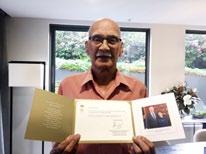
While the milestone ideally would have been cause for celebration, restrictions on account of the pandemic meant the birthday boy cut his cake in the presence of a limited number of family members and a representative of the Goan Overseas Association Community in Victoria.
On the secret of his longevity, Ligorio said, “Most probably, I inherited good genes, and made an effort to keep fit. Till today, I exercise, play pool and keep my mind active with games like word search. I’m blessed, and thank god every day.”

His daughter Lorna Menezes said, “Dad was determined to reach this milestone and

managed to achieve this with good health.”
She added, “Ligorio has been a loyal husband, nurturing father, comforting and loving grandfather and a good friend to many. He is a positive person with a zest for life. He has a curious mind, an adventurous spirit and is an inspiration to many around him.”
Birthday wishes poured in from across the world, leading with Her Majesty Queen Elizabeth; His Excellency General the Hon.
David Hurley AC DSC (Retd), GovernorGeneral of the Commonwealth of Australia; Governor-General of Victoria, the Hon. Linda Dessau AC; and Prime Minister of Australia, the Hon. Scott Morrison MP. The centenarian even received special Papal Blessings from Pope Francis.
Ligorio migrated to Australia in 1993, a year after the death of his wife Valdemira. In 2000, he became an Australian citizen at the age of 80.
In the early ‘70s, Ligorio returned to Goa with his family and kept busy with social work, immediately joining the Aldona Panchayat (village council). A decade later, he was elected Sarpanch (village council head) of Aldona. He contributed to the community by helping improve roads, providing electricity, water and gas supply to the village. Till date, he is fondly remembered by residents of Aldona.
Ligorio’s family consider him a multitalented man, still sewing using the good old Singer machine, along with being skilled in woodwork and carpentry. He also loves dancing and music and plays the harmonica.
He has been blessed with four children, eight grandchildren and five great-grandchildren. His daughters Lorraine Almeida and Lorna Menezes live in Melbourne while his daughter Lynette Jones lives in Perth. His oldest son Leslie D’Souza resides in the UK.
Australia has been his home for almost thirty years, but Ligorio does miss Aldona sometimes.
The centenarian’s fond memories of Goa are the “susegad life” (a Goan term for a content life), enjoying fruits like mangos and jackfruits that were once planted by his wife.



JUNE 2020 23 NATIONAL EDITION
Birthday greetings from heads of state and government
The D’Souza family
Ligorio at his hometown Aldona
Propelling the migrant community back into the workforce

The sudden shrinkage of the labour market due to COVID-19 has left thousands of migrants and international students displaced, anxious and questioning their prospects to work in Australia. However, this time of crisis has exposed the selflessness that exists within the Indian Australian community with the emergence of a variety of initiatives, such as food drives, pro bono professional advice and free career counselling becoming widespread in the community.
With government responses, such as the Jobseeker package, failing to address the circumstances of international students, many have been left struggling to secure job opportunities to support themselves during this time. In the face of this, many international students and migrants have sought to reorient themselves within the disillusioning labour market to secure new jobs in new industries.
Whilst the government has cast these groups to the sidelines, the Australian Indian community has emerged united to provide much needed support during this time. One example of this is the Young Sikh Professionals Network (YSPN), who have recognised the anxiety that exists among migrants and international students regarding employment opportunities. In response, the organisation has launched a free online CV check program to help those in need during this time. YSPN has openly invited all members of the Australian Indian community to email their CVs to the team who will review it and provide feedback on how to be better positioned when applying for a job. This sewa (selfless service), has been running for over a year through monthly pop-ups at Glenwood Gurdwara. However, the recent social restrictions have prompted YSPN to digitise this CV check process, and through this the organisation has scaled the impact of this service. In the

last two months alone, the organisation has assisted over 50 migrants through CV checks and career counselling. Participants of the program have expressed gratitude with YSPN’s sewa during this time, with one participant stating that ‘being new to the country and not knowing many professionals here has made it hard for me to know how to properly do my CV and how to prepare for job interviews. I am extremely grateful for the volunteers at YSPN who give up their time and offer their expertise to help us.’
Migrants and international students are currently also experiencing anxiety associated with financial distress, accommodation and visa concerns. YSPN has recognised that these conditions have the propensity to result in a surge of issues relating to mental and physical wellbeing. In light of this, YSPN has also recently launched a webinar series to address these issues that are impacting changes our personal and professional lives. Past
webinar topics included ‘Maintaining Positive Wellbeing during COVID-19’ and ‘Re-emerging Personally and Professionally.’
Other community organisations were also quick to mobilise in response to the issues borne out of the COVID-19 crisis. For example, Khalsa Aid, Sikh Volunteers Australia and Turbans 4 Australia all jumped at the opportunity to help the needy by running food drives and food delivery services for the vulnerable in the community. Other organisations provided a lending hand to international students who were suffering financial hardship, such as the Global Organisation of People of Indian Origin (GOPIO) who offered to help international students pay rent for a fortnight early on in the crisis.
COVID-19 has had overwhelming impacts on the migrant and international student community, which has been compounded by the exclusivity of the government’s economic response. However, the past few months have unveiled the true character of the Australian Indian community as one that bands together, provides collective support and bolsters the community in a time of crisis.
Borderless and boundless, the YSPN online CV check now allows for participants from all across Australia and New Zealand to send their CVs in for review. If you want to send your CV or are seeking general career counselling, send an email to cvcheck@ yspn.org.au or go to YSPN.org.au for more information about their COVID-19 response.

24 JUNE 2020 www.indianlink.com.au
WORK
ySPN views its cv check and career counselling program as ‘sewa’. HASVEEN CHAHAL and SIMREN SAMR AI report



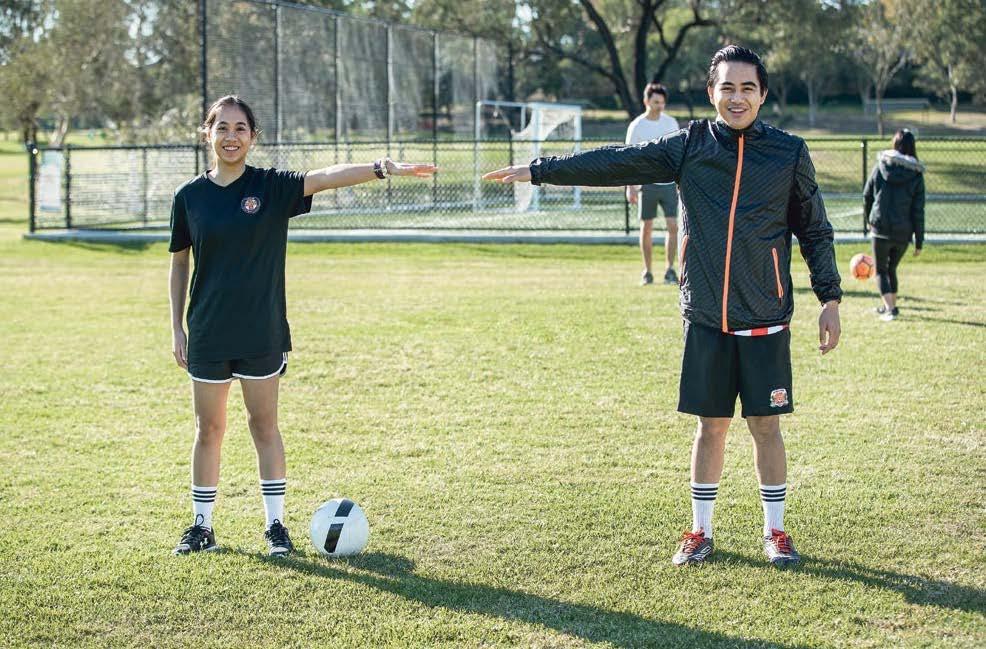










JUNE 2020 25 NATIONAL EDITION For tips from real ex-smokers visit YOU QUIT. YOU WIN. QUIT THE EXPENSE. You could save over $10,000 a year if you quit smoking. Distancing is working. And we’re all doing an amazing job to help stop the spread of COVID-19. Our combined e orts so far mean that some restrictions are being eased. But we must remember to keep distancing, and wash our hands regularly. If you feel unwell stay home, and if you have any COVID-19 symptoms, get tested. By doing this, together we will help prevent outbreaks. And we will save lives. For more information on COVID-19 visit nsw.gov.au Keep going. Stay 1.5m, or two arm lengths apart.
When an Indian football star isolates in Sydney
Gurpreet Singh Sandhu, goalkeeper for the Indian national team has been training in Sydney with his Bengaluru fc teammate and Socceroo erik Paartalu

 AYUSH AYUSH and RHEA L NATH report
AYUSH AYUSH and RHEA L NATH report
When news of international travel bans and lockdowns reached Gurpreet Singh Sandhu, goalkeeper for the Indian national team and a professional footballer, he was left with a quick decision to make –where should he ride out the pandemic? He happily chose Sydney, a place he calls his second home given his partner lives here.

“This is the third time in the last year that I’ve visited,” Gurpreet told Indian Link. “I love the expansiveness of Sydney and how beautiful it is. Luckily my Bengaluru FC teammate, Socceroo Erik Paartalu is also from here and we have been able to get together on numerous occasions to train.”
Around the world, the sports landscape has changed due to the pandemic. For Sandhu, the fight against COVID-19 has a personal connection – his parents are frontline workers.
“Both my parents are police officers in the Chandigarh and Punjab Police, and their safety is very important to me,” he related. “COVID-19 has been a bump in the road for the whole world, but it has also given us a chance to stop and realise how important life is, how we shouldn’t take it for granted, how our actions have affected the planet.”
Meanwhile the football world tries to limp back to normal, with Bundesliga returning and La Liga and Premier League planning to come back soon too. Sandhu agrees with such measures if nations manage to control the spread of the virus and flatten the curve.
“It will give a sense of normalcy to people around the world. But I urge sports enthusiasts to stay home as much as possible and maintain social and physical distance. Sports is not the biggest priority right now, people’s lives are,” he said.
He added, “I think a lot of new measures will come in place of how to minimize contact. Perhaps playing indoors for a while, no handshakes, changing of kits at half time etc may become the next normal for the time until we have a cure for the virus.”
In September last year, Indian football fans were glued to their screens for an exciting World Cup qualifier – India facing off against Qatar, the Asian champions, on their home ground.
There were many close calls and near misses, and all eyes were on India’s goalkeeper. Largely due to Sandhu’s clutch saves and one of the best performances of his career, this game made India the only team after Brazil, Argentina and Colombia to have kept a clean sheet against Qatar.
“We had nothing to lose when we went in,” Sandhu recounted. “They were the champs playing on their home ground. All we had to was play to the best to our abilities, and every one of us did.” He had worn the captain’s armband in a game that was one of the sporting highlights of 2019.
Last year was a remarkable year for the
28-year-old, who enjoyed another successful club campaign with Bengaluru FC, his second consecutive Golden Glove win, and the Arjuna Award for his outstanding achievements in Indian sports.
“To receive the Arjuna Award was a great moment for me and my family and winning the Golden Glove twice in a row makes me want to work even harder. It’s easy to get to the top, but difficult to stay there - and I want to stay there!” Sandhu said with a smile.
Ever since his first taste of professional football with East Bengal as a 17-year-old, Sandhu has made remarkable strides. In 2016, he became the first Indian to play in the UEFA Europa League, describing his time with Stabaek Fotball in Norway as “three unforgettable, career-defining years.”
“Those were the best days of my career, and to be able to be there for three years was a blessing. I learned so much about the game and about myself, and it gave me my most important weapon: mental strength,” Sandhu recalled.
As a child, the football star followed former Manchester United goalkeeper
Favourite teammates and opponents?
I think all of the teammates that I have in club and country are my favourites I cannot pick one. The opponents I like facing with India are the best teams Iran, Qatar. In the ISL I love playing against Goa, ATK and Chennai.
Favourite match?
In the last one year, I would say the Qatar vs India game.
Favourite in-game memory?
Edwin van der Sar and Indian goalkeeper Subrata Pal. What does he think the game can contribute to youngsters and their development?
“In today's world where kids are surrounded by gadgets, it’s even more essential to incorporate sports activities,” Sandhu replied. “I learned team bonding, caring about the person next to you, and how to cope with losing and winning through sports.”
Enjoying his time self-isolating in Sydney, the Indian player sees a great relationship between the two countries. A lot of Australian players, such as Tim Cahill and Erik Paartalu play in the Indian Super League (ISL), and the Indian hockey team is being coached by Australian legends.
“Both nations have pushed each other to excel in whichever sport they meet up against each other and with that bond, now we see Aussie players and coaches plying their trade in India,” he said, “Maybe someday we will see some Indian players playing in Australia!”
Sunil Chettri telling me where the penalty was going to be hit through his assumption and me then saving it when we played against Hyderabad.
Most dif cult player you have faced? Miku.
Favourite goal you have saved?
The penalty against Mumbai City.
Favourite crowd/stadium to play at? Kanteerava in front of the West Block Blues.
26 JUNE 2020 www.indianlink.com.au
UP CLO S E & PE RS ONAL SPORT



















NATIONAL EDITION


28 JUNE 2020 www.indianlink.com.au
Send Money Overseas most reliably and securely within 10 minutes through moneygram




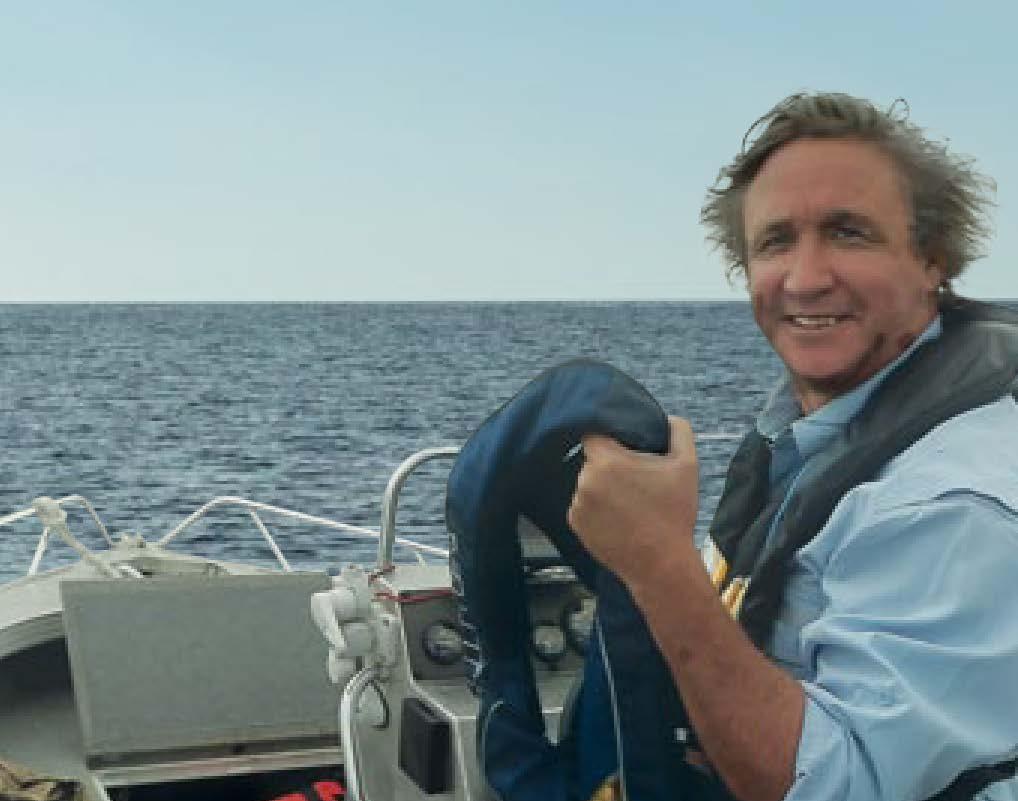




Send Money to any bank account at the best rate and at fee of $15


(No Limits applicable on amounts)




Exchange your currency with us, we give the best rates and do not charge any commission


Send money to our own branches in all major towns and cities in Fiji and New Zealand


Ask us about our commercial business, we do import payments and all international business related remittance at best rate and a at fee of $15.00 only

JUNE 2020 29 NATIONAL EDITION VISIT LIFEJACKETWEARIT.COM.AU CHOOSE TO WEAR A LIFEJACKET OR CHOOSE TO RISK IT ALL TNSWJS0010_Lifejackets_170x122mm_V01.indd 1 15/10/19 9:03 am International Migration Centre Contact us for all your Australian Visa needs • Skilled – independent and Australian sponsored visas • Independent and sponsored visas for regional areas • Student visas and graduate skilled visa • Fiancé, partner and other family visa applications • Business skill – Temporary, provisional & permanent visas • Bridging visas • Applications for Review and Appeals Tribunals CONTACT DETAILS Amrit P Jagota (MARN 0532014) Ph 0414 338 423 Manvinder K Josan (MARN 0962796) Ph 0410 719 375 We have moved to new address Suite 2, Level 1, 57 – 59 Dunmore Street Wentworthville NSW 2145 Phone 02 86287336 JULY NATIONAL EDITION St.Lukes 649 846 6637 Brown Bay 649 476 2086 Sylvia Park 649 525 4111 Mid Queen 649 377 5478 New Lynn 649 825 0121 Hamilton 647 834 3293 Wellington 644 589 9582 Parramatta 02 9806 0977 Parramatta 02 9806 0955 Blacktown 02 9831 8033 Liverpool 02 9877 2201 Hurstville 02 9585 2881 Sydney CBD 02 9235 2553 Darling Hbr 02 9211 3021 Brisbane City 07 3220 2881 www.lotusfx.com NeW ZeaLaND BraNCHeS 649 369 1723 Manukau 649 262 2931 Mt.roskill 649 620 4757 Papatoetoe 649 277 4000 Lower Queen 649 365 2280 Pakuranga 649 577 3223 rotorua 647 350 2425 Christchurch 643 343 3357 aUSTraLIaN BraNCHeS FIjI BraNCHeS Suva 679 331 7755 Suva 679 310 0512 Nadi 679 670 2257 Lautoka 679 666 7855 Nausori 679 347 7042 Namaka 679 666 1242 Labasa 679 881 1106 Nasinu 679 339 2007 Ba 679 667 8155
Rediscovering travel

It’s time to plan an Australian adventure
BY PETRA O’NEILL
When I saw my neighbour’s pug dog exhausted, belly up with legs wiggling in the air, I asked his owner, “I’ve seen Billy go on five walks today, is that too much?”
“Actually,” came the response, “it’s either walks, or staring at four walls, what else is there to do?”
Back in the day, we could go almost anywhere, too easy to hop on a plane to explore exotic faraway places. My trip to Japan was cancelled, and my upcoming cruise to South America is looking decidedly shaky. While overseas travel won’t be happening anytime soon, at last domestic
restrictions are beginning to ease, one baby step at a time. Here’s how to plan your next trip to get you back out there on the travel treadmill.
T H E GR E AT O U TDOORS
Winter is the perfect time to visit a park. It’s fun to pack a rug and spread out a picnic, trying a different park each time, and our cities are filled with them. National Parks are also waiting to be explored, so seek out adventures on your doorstep. You can go hiking inland or follow the coastline. For Sydneysiders for example, check out Sydney Coast Walks online for descriptions of some great walks. Manly to Spit Bridge or Watsons Bay to Maroubra are both amazing, keep an eye out for whales, as well as walking along the pathways that hug Sydney Harbour. Royal National Park, Kuring-Gai Chase and the Greater Blue Mountains National Park
are go-to destinations for discovering the rugged landscape and watching out for birds and animals that live there. If you’d rather an escorted trip, Life’s an Adventure is offering hikes of the Royal National Park and Blue Mountains from June, with walks in other states including Victoria’s Great Ocean Road slated to follow.

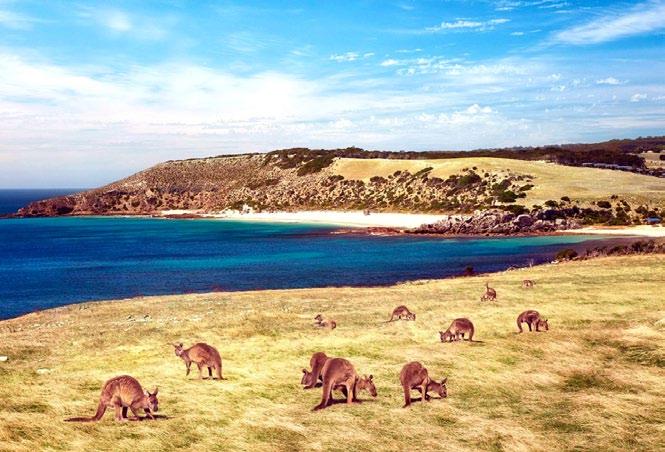


G O ON A ROAD TRIP
Growing up in country Victoria, our family would drive to Melbourne, Portland or Adelaide for a quick getaway. What I enjoyed most of all were the stops along the way to visit scenic sights, buy fresh produce from orchards and farms, have lunch at a country pub, and walking down the main street of country towns to view the wares not seen in big cities – crafts, riding boots, saddles, and broad brimmed slouch hats. Before you set off, consider all that you can experience
along the way - orchards, wineries, an amazing café or restaurant, towns you can stop at and the scenery you’ll see.
With fewer cars on the roads, it’s the perfect time to go on a road trip to discover a destination you may not yet have seen. Our coastline is spectacular, but inland there is much to discover.
Many scenic drives can easily be done in a day. From Sydney follow the Grand Pacific Drive across spectacular Sea Cliff Bridge, explore the Blue Mountains, or the Hunter Valley. From Melbourne, my favourites are the Yarra Valley, Great Ocean Road and the Mornington Peninsula. The Tourism Australia website, state and local tourist information centres have driving routes and lots of information. If you can extend your trip, consider staying at atmospheric local pubs, motels, guesthouses or hotels. Or stay in a villa and have the place to yourself.
30 JUNE 2020 www.indianlink.com.au TRA ve L
Bay of Fires, Tasmania
Bungle Bungles, WA
Uluru, NT
Kangaroo Island, SA
N OTHING IS STOPPING YO U
With regional travel within state borders permitted once more, I jumped at the chance to travel from Sydney to Tamworth by train, meeting up with my daughter to explore the countryside that after heavy rain is looking green and lush. Our trains were comfortable and a great way to watch the passing scenery. Flights with Jetstar and Qantas will resume soon, with (hopefully) Virgin Australia by September. Make a wish list of places within Australia that you would like to see, and all your friends and family that are due for a visit. Sign up for email alerts with airlines, hotels and tour operators, so you’ll be able to grab some great travel deals. There is plenty to like about home.
SEE YO U R WORLD DIFF E R E NTLY
Seek out adventures on your doorstep by experiencing the world around you differently. When you next visit a park, go wildlife spotting, look for the animals that live there and smell and touch the native plants. Find out the history and meaning of the places you visit. In Sydney, Bondi for example, is an Australian Aboriginal word meaning breaking water over rocks. Manly was named by Governor Arthur Phillip, our first governor, after observing the manly behaviour of the local aboriginals, who speared him in the leg. While you can walk around Sydney Harbour, try a ferry ride, go sailing or kayaking or visit one of the many islands of the harbour that are open to visitors.
Though you can’t visit the world, let the world come to you, by recreating it at home.
I may not get to go to Turkey as planned next year, but I bought a box of Turkish Delight, and have been giving online language and belly dancing lessons a go. And while I may not get to India soon, while in Melbourne, I’ve signed up for a foodie trail with Masala Meander, for a guided tour of Indian restaurants and spice shops.
T H E U LTIMAT E LIST
If I had to narrow down my list of favourite destinations for each state and territory beyond the capital cities, they would be:
NSW: Lord Howe Island, Blue Mountains, Broken Hill

Victoria: Great Ocean Road, Grampians, Mornington Peninsula.

South Australia: Kangaroo Island and the Flinders Ranges.
Western Australia: Ningaloo Reef, Kimberley, Karijini National Park.


Northern Territory: Kakadu and Litchfield National Parks, Uluru and Kata Tjuta, West MacDonnell Ranges.

Queensland: Gold Coast Hinterland, Great Barrier Reef

Tasmania: Bay of Fires, Freycinet.
FU RTH E R INFORMATION
When planning your trip, start big. For my Tamworth trip for example, I began with the website for Tourism Australia, next at the state level, Destination NSW, then the local level DestinationTamworth.com.au
Sign up for email alerts offering discounts and special deals with airlines, hotels (for example Accor operate many hotels across Australia), and tour operators (Intrepid, Life’s an Adventure and AAT Kings are my pick).
JUNE 2020 31 NATIONAL EDITION
Flinders Ranges, SA
Great Barrier Reef
Twelve Apostles, VIC
Twelve Apostles
Great Barrier Reef
Roof restoration
Guttering solutions
Whirly birds
Driveway cleaning & painting

Fencing & retaining walls

Skylights
Sunrooms
Leaf guards
Carports, decks, patios & pergolas
MAT R IMONIAL S
SEE KING G ROOMS
Professionally quali ed match (31-38 years) for ’88-born 5"3" Hindu Punjabi girl, divorced (short marriage, issueless). Full time govt. job in Sydney. Pref teetotaler. Aus PR/citizen only. Email: matrimonial.ml@gmail.com.

Wanted a suitable match for 40-year-old Brahmin girl 5’-4’’, fair complexioned, well settled in Australia,in government job and owning residential property. Contact kumar. sham@bigpond.com
Seeking suitable professional boy,born and brought up in Sydney, for young attractive girl, never married, 33, 5’2”, born and brought up in Sydney. Professional educator, Hindu Indian well settled family. Contact Soulmatemspl@gmail.com
Beautiful, 34-year-old, highly educated girl, with very good family background, soft spoken, career oriented, vegetarian Brahmin,









working, well settled in Sydney, seeks an educated, teetotaller match with good family background. Prefer Australian citizen or PR. Please contact rajsyd83@gmail.com

SEE KING B RID E S
Indian Christian Protestant parents, seeking a suitable match for their 40-year-old son, software engineer, born and brought up in Australia. Seeking a Protestant girl between 32-37 years. Email: sammy5073@gmail.com
Mob 0403836360
Wanted suitable match for 36-year-old Brahmin boy, 5’-8’’ fair complexioned, well settled in Australia,in his own successful business.
Contact kumar.sham@bigpond.com
Wanted suitable match for 35-year-old Brahmin boy, 5’-11’’ fair complexioned, well settled in Australia in a government job. Contact kumar.sham@bigpond.com

32 JUNE 2020 www.indianlink.com.au VIRDI ENGINEERS ROOF RESTORATION Professional advice at the lowest price Serving the community for over 20 years Lic. No. 114274C Pay in easy interest free installments* *Conditions apply. Limited period only. Contact Harjit today! Call: 0412 254 015 Fax: (02) 9920 1044 web: virdiengineers.com.au
June 2020
BY MINAL KHONA
Minal Khona has been reading tarot cards for the last two decades. She uses her intuition and connect with the cards mostly to help people.

A RI E S March 21 - April 19
TA U R U S April 20 - May 20
Fives denote challenges and changes. Given the current scenario, Arians should stick to the rule book in everything they do. If something related to your work takes a setback, look on the bright side – it might lead to a romantic opportunity. If you experience any health issues with breathing or your heart, check with your doctor. Though money owed to you is slow to come by, you will still be able to get by nancially. You will have to learn to function in a different way from now on.
The home-loving Taureans could display Virgo-like nicky behaviour this month as the card that represents Virgo shows up. It also means that they could be extra analytical and practical about things instead of being bull headed. A broken relationship leaves you in despair. You might be thinking of changing professions. A health problem could affect your daily life. A business plan falls through; and this could frustrate you further. Let go of your ego and let God guide you in everything.
V IRGO
Aug 23 - Sep 22
The card drawn this month stands for friendships of all kinds. If in a relationship, clarify what you need from it before taking it forward. You feel ambitious and want to work on a larger canvas. Family reunions and reconciliations are in the of ng. A nancial problem that was bothering you for a while will get resolved amicably. Trust your path and have faith that you will get the guidance you need. Resolve your inner con icts with yourself rst.
S AGITTARI U S
Nov 22 - Dec 21
TAROT

GE MINI
May 21 - June 20
If you are seeking clarity in matters related to work and nance, expect a delay. Unexpected problems concerning your nances or family matters will crop up this month. But you will be able to overcome them, even with the hurdles. Don’t take on too much at once as you can fall sick, and you don’t need that with the virus still around. A disputed nancial transaction will get settled though a delay might occur here too. Be courageous and sincere in everything.


L IBRA
Sep 23 - Oct 22
Expect change in a situation that had fallen into a rut. You need healing in a major area of your life that could be affecting other aspects too. At work, you get the support and assistance you need from seniors and juniors. A health problem will get cured. Turn to alternate therapies and meditation if your mind is not at peace. Unful lled desires keep you unhappy, and here is where turning inwards will help. New beginnings are on their way.
C






APRICORN
Dec 22 - Jan 19
An idea you incubated for long is about to be manifested. The normally outgoing Sagittarians might want to spend time in meditative solitude this month. At work, a project that was shelved could get renewed. Don’t neglect your health this month. Finances could get held up but the money will come. A fear you held regarding a relationship will not transpire. Your prayers will be answered and luck is with you in granting a wish you had.


A dif cult period nancially from all angles. There could be self-doubt and dif culties in your relationships. It is a hard time but the practical Capricorns will nd a way out of it. Some of you could lose your job. There could even be a break-up if in love. A fall or an accident will require medical attention; other health issues won’t be as serious. People who share your views could come into your life. Avoid a poverty of spirit feeling from enveloping you.
CANC E R June 21 - July 20
Cancerians might be extra stubborn this month as the card they have pulled represents Taurus. So, instead of being moody, they might just be a little stubborn, but also persevering. An ex might return and if your relationship is rocky, you may not be able to walk away from it. Your emotional problems could affect your work atmosphere. Financial problems still need resolving. Health, especially your teeth, could need tending to. Your success comes from unexpected opportunities and studied efforts.



S CORPIO

Oct 23 - Nov 21
You get nostalgic about your childhood and relive times that gave you happiness. Following your own intuition has bene tted you thus far, and now new possibilities in romance will open up. You get the support you seek at work and in your personal life. A new job or project will renew your zeal and enthusiasm. Expect visits fromfriends and family. Health problems continue to bog you down. Those in the literary eld can look forward to their work getting published.
AQU
ARI U S
Jan 20 - Feb 18
You are in a stage where you concentrate on just doing your best under the current circumstances; building faith and waiting for the right moment. Continue to do so but don’t take on more than you can handle.
If you are in a romantic relationship, there could be two people wanting a commitment; the choice won’t be easy for you to make. Professional shifts towards the metaphysical can be successful. Take a second opinion for a health issue as it could have been misdiagnosed.






This card stands for Sagittarius so Scorpios may want to hit the outdoors in a big way post the lockdowns everywhere. The solitude and isolation away from socialising will have the intense Scorpio introspecting about their life and where they are headed. Some of you will think of a new approach to your work which can be rewarding. Others might consider moving closer to their parents. Don’t neglect any niggling health issues. There are major changes coming your way.
P ISC E S



Feb 19 - March 20
Partial success in your current problem is foretold. You want to improve your career prospects and will make plans to further that goal. There could be a reunion or a reconciliation in store for some. If you meet someone you like, ensure they are single and not married and unhappy. Success at work makes you feel good. A new business idea needs to be thoroughly examined. Pro ts will increase for the self-employed. In everything you do this month, plan your work ahead.
JUNE 2020 33 NATIONAL EDITION
LE O July 21 - Aug 22
f OR e T e LL
cineTALK
SMALL FILM, BIG SURPRISE
lower-middle class Bihari emigrants stranded in war-torn Baghdad, with chances of returning to India rather bleak based on a technicality. Chintu's birthday becomes a bona de reason for the family to forget their woes and be happy, at least for a day. Except, as the lm reminds, the happiness in one's home cannot be separated from the state of his world outside.
CHINTU KA BIRTHDAY
S TARRIN G: Vinay Pathak, Tillotama Shome, Vedant Raj Chibber, Bisha Chaturvedi, Reginald L Barnes, Nathan Scholz
D IR E CT O R : Devanshu Kumar and Satyanshu Singh
H H H H
On Chintu’s sixth birthday, he understands that it’s his special day - there are balloons all around the house, his father has promised cake (though his dadi would love kheer instead) and all his best friends will be there soon.

What Chintu doesn't understand is all that's going on in the lane outside, and in the city. There are explosions. The bakery is shut because the baker was shot, and a few children have
INDIAN LINK SOCIAL MEDIA




apparently barged in to feast on cakes. His parents are tense because his elder sister has not yet returned from school, though school was declared shut a while ago.
Chintu's world is simple - one of cakes, buddies and school. The world outside is in nitely more complex, for Chintu and his folks are Indian expatriates in Iraq, 2004. His father is a salesman of water puri ers in Baghdad at a time Saddam Hussain has been captured and is awaiting trial. The ‘Amreeka waale uncle' he sees on TV (refers to President George W. Bush) won't call his soldiers back.
Chintu Ka Birthday introduces its premise with this backgrounder in the opening portions, before a sudden spin in the tale gets the story
BAAZAAR
DIRECTOR: Gauravv K. Chawla
STARRING: Saif Ali Khan, Rohan Mehra, Radhika Apte, Chitrangda Singh HHHHH
racing. In just 83 minutes, debutant writer-directors Devanshu Kumar and Satyanshu Singh narrate a story that is at once an account of harrowing wartime through an innocent's eyes, and a taut suspense drama that justi es every second written into its runtime.
Kumar and Singh have set up their lm entirely within a single apartment. It involves barely 10 characters. Camera and sound effects are impressively functional, devoid of technical gloss. The storytelling never wavers from a linear track.
I can’t recall a single notable (or even non-notable) Indian lm based on the plunging dips and giddying highs of the stock market. Do you remember Harshad Mehta? How could you forget the podgy stockbroker who made thousands of Indians rich overnight and then it all ended in a nancial mess in no time at all?

Saif Ali Khan’s Shakun Kothari’s destiny run on the same lines. Except that Saif as the wily ruthless
For those reasons, Chintu Ka Birthday is a writers' effort. Its triumph lies in the way the narrative is structured, the twists are introduced, and the characters are imagined.
This is the story of a family of
Machiavellian stockbroker is everything that Harshad Mehta would have wanted to be. This is Saif’s most gloriously written and performed part, meaty witty and wicked. He chews into it exposing a sacred hunger that I didn’t notice in his last over-hyped outing.
Saif as Shakun is a true-blue Gujju who won’t let neo-af uence corrupt his cultural integrity. He slips into Gujjucations with the unrehearsed cuteness of tycoon, who has long ceased to be cute to everyone, including his own wife and children.
When debutant Rohan Mehra enters the plot as Rizwan there is no Shakun Kothari around. We know Rizwan idolizes Shakun and wants to be like
The screenplay is incredible in the way it balances nuanced relationship subtexts with the larger socio-political context in such a short runtime. For Chintu's father Madan (Vinay Pathak), arranging a cake for his little boy is as much a matter of life and death as proving his innocence in the unwarranted jam he will subsequently land in. The mother (Tillotama Shome) has her own worries of putting up a semblance of normalcy for her kids. Each character is well etched-out, each role awlessly enacted. While the grown-up cast couldn't have done better, little Vedant Raj Chibber as Chintu is worth an applause for the way he uses silent gaze to convey a gamut of emotions. The junior cast is particularly impressive. Mehroos Ahmed Mir as Chintu's spunky Iraqi pal Waheed and Bisha Chaturvedi as his elder sister Lakshmi are a delight to watch. Imperfections? You could feel a bit let down by the lm's obvious insistence on nding a feel-good ending that might seem a tad unrealistic, given the reality of war. Considering this lm is, after all, about reasserting the little hopes of life, you can just gloss over that glitch. Vinayak Chakravorty
him have. Rizwan’s a bristling her nale.
He down moment in of the come ‘When (Nikhil Arora)
Athe with. the the towns. in the and celebrated country: Year, Ramadan to name However, of the peoples reminder been reminds achieved The the put current 18C constrains speech. That unlawful public likely… humiliate another of people” is done race, ethnic person There that is important important the democracy. of

34 JUNE 2020 www.indianlink.com.au
e NT e RTAINM e NT
36 NOVEMBER 2018 AUGUST
can
and decisions Section role A cannot Australians speech Section
Reliable Service and Privacy Guaranteed
Over 25 lenders to choose from • Commercial finance Health check for existing Home Loan
speech when ballot an informed about Freedom a community,
•
•
18 years of experience in finance industry. Talk to a qualified professional. Dandenong and Springvale Call Swati Palsule on 0411 78 28 18 Authorised Credit Representative 400349 of BLSAA Pty. Ltd. (Australian Credit Licence No.391237) Talk to a specialist for all your Home Loan needs THERE IS NO SUBS T I T U T E FOR EXPERIENCE. swati@buyerschoice.com.au
“I used to think that all mortgage brokers are the same.... until I met Swati” – Komal
Over
cineTALK ENTERTAINMENT
CH O K E D: PAISA B O LTA HAI
S TARRING: Saiyami Kher, Roshan Mathew, Amruta Subhash, Upendra
Limaye
DIRECTOR: Anurag Kashyap
HHH
In this oddly-titled Net ix lm, Anurag Kashyap tries building up suspense and drama by cocktailing the realism of demonetisation with a bizarre plot of wish ful lment. Choked: Paisa Bolta Hai is quite unlike anything he has attempted before - the trademark grim lmmaking is missing. Instead, he opts for the lighter idiom of satire.
Nihit Bhave's script is set in suburban
B E TAAL (Net ix series)
S TARRING: Viineet Kumar Singh, Aahana Kumra, Suchitra Pillai, Jitendra Joshi, Siddharth Menon, Manjiri Pupala
DIRECTOR: Patrick Graham
HH
The problem with Betaal is it tries being too many things. It tries to be a morality tale about modern-day urbanisation and greed, as well as a slice of ancient lore serving up every stereotype that has ever de ned ‘desi’ mumbo jumbo. There is also token mention woven in of superstitionloaded gender bias, Naxal politics, and the Indian Muslim identity.
In all this, the makers seem to have forgotten what we primarily signed up to watch – a scary show.
Sure, there are the hordes of zombies, lots of creepy dark scenes thriving on insuf cient lighting and ominous sound engineering, besides the standard gore quotient you would expect from a story of this particular horror sub-genre. But it is all too formulaic in presentation to create the right effect.
The lack of fear factor about Betaal
SUPERB IDEA, POOR EXECUTION
intentions as an entertainer and a vehicle for socio-political comment.
Yet, it all starts to meander after a point. A runtime of below two hours starts feeling too stretched, and for a lm that primarily tries regaling as a suspense drama, that bit is a downer. Choked somehow lacks the familiar Anurag Kashyap touch of assuredness, a disappointment as the lm held all the promise of being an all-out winner.
middle-class Mumbai of 2016. The story begins in October, a month before the India’s demonetisation of Rs 500 and Rs 1,000 currency notes would take place.
The plot is centred on a family of three, bank employee Sarita (Saiyami Kher); her unemployed, struggling musician husband Sushant (Roshan Mathew); and their son. Sushant, who can never hold on to a job, has piled up a sizeable debt while Sarita hardly tries to hide her exasperation. Their daily bickering sessions are a staple for the neighbours.
A twist in the tale comes when Sarita discovers the drainpipe below their kitchen sink over owing with neatly-
packed bundles of currency notes. What's more, the accidental bounty isn't a one-off coincidence. It starts occurring every night.
What follows is meant to be a gripping saga of secrets and cover-ups, though Kashyap throws in an expected dose of comment between the lines, too. Sarita's ready willingness to make best use of her freak fortune, without stopping to bother about reason or consequence, underlines a world where money is all that matters. When demonetisation happens out of the blue, Kashyap gets a chance to take a few sly political jibes at "achhe din" (good days).
Doubtless, Choked touts the right
Still, the effort makes for a hearty one-time watch, primarily for a brilliant cast. For Saiyami Kher, being Sarita was the assertion she needed in order to prove that her debut act in Mirzya (2016) is a nightmare best buried in the past. Saiyami gets Sarita's middleclass working woman/homemaker body language admirably right, just as she impresses in exuding the protagonist's silent angst over a past failure in life. The particular incident of her past is interestingly used in the story to justify her recklessness, as she goes about with her get-rich-quick mission.
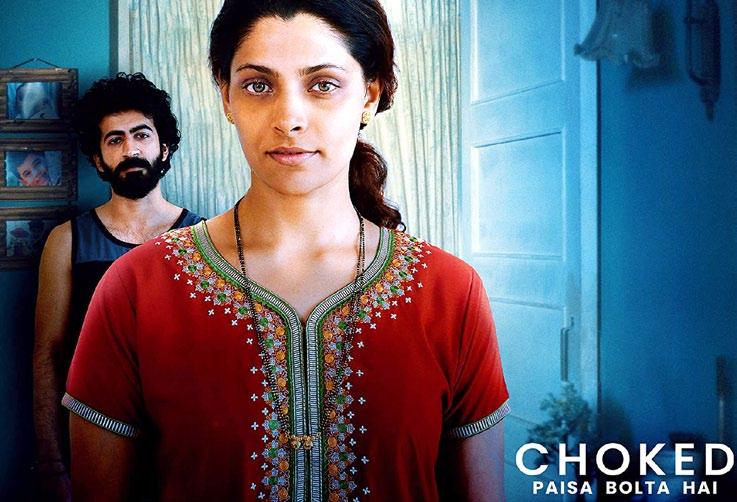
Roshan Mathew as Sushant and Upendra Limaye as Reddy the shady moneylender are a delight to watch, but the recracker in the cast has to be Amruta Subhash. Playing the friendly neighbourhood ‘tai’, she delivers the scene of the lm in her reaction at the news of demonetisation. It's priceless.
Choked scores with a superb idea thatthe cast delivers with gusto. With a little more pace and storytelling punch, this could have been the season's wackiest OTT entertainer.
Vinayak Chakravorty
WHERE ARE THE SCARES?
of course. He hires a military squad to ensure the job gets done.
Sure enough, the squad is attacked by mysterious forces once they have entered the tunnel. The evil unleashed turns out to be an army of the undead.
trapped squad resort to black magic gobbledygook – the right mix of ash, turmeric and salt, you see, can thwart the undead where state-of-the-art automatic ammunition fail.
is surprising, considering the show’s creator and co-writer Patrick Graham made the mini horror epic Ghoul a while back.
A contractor named Ajay Mudhalvan (Jitendra Joshi), who cares for money and little else, is out to construct a highway through the jungle. A mysterious, closed tunnel comes in the way, and Mudhalvan needs to destroy it. Local tribals warn him the tunnel is cursed, and venturing in could spell doom. Mudhalvan won’t believe them,
The script tries to make a sociopolitical statement with the way the tribal villagers are treated. For standing up against the construction, they are ruthlessly eliminated and labelled as Naxalites. It is all woven in as a matter of convenience, without as much of an attempt to understand the Naxal movement or its fallout on society.
Forget an overall narrative that might engage, Graham and co-writer Suhani Kanwar struggle even while setting up the primary con ict on which the screenplay tries banking on – between the military squad and an ancient army of zombie British soldiers belonging to the era of Sepoy Mutiny, who emerge from the tunnel once it is opened up.

Clearly, the writers ran out of imagination soon enough. For, having exhausted all military game-plan, the
It gets progressively hilarious as the stage is set for a predictable nal ght between the human and zombie soldiers. When all else fails, the writers resort to overdone blood-soaked mayhem to hammer home some sort of a dazed impact. The utter lack of taut thrills becomes the reason you start feeling disinterested.
Still, Viineet Kumar Singh tries adding as much heft to the show as possible with understated screen presence, as he balances intensity and vulnerability. Manjiri Pupala’s is another impressive act, as the tribal woman Puniya.
For almost every actor playing a human here, the lack of meaty characters (no pun intended) means that they tend to ‘out-zombify’ the cast that plays the undead.
Vinayak Chakravorty
JUNE 2020 35 NATIONAL EDITION
The BUZZ
Chronicler of



They called it middle-of-the-road cinema back then. It was all about serving entertainment on the big screen with a slice of realism, telling stories of real people, drawing humour out of everyday miseries and joys. Indeed, today’s content-driven 'small film’ of Bollywood, which primarily regales the urban multiplex crowd with its stories of realism, owes its roots to the middleof-the-road wave that swept mainstream Bollywood in the seventies and the eighties.
No mention of that genre would be complete without three names –directors Hrishikesh Mukerjee and Basu Chatterjee, the creative geniuses that propelled the genre; and the incredible actor Amol Palekarwho defined the everyday hero for these filmmakers.
While Hrishi da passed away in 2006, Basu Chatterjee breathed his last on 4 June, 2020 at the age of 93, owing to age-related ailments. His last rites were performed at the Santacruz Crematorium, Mumbai.
Chatterjee started out as an assistant director to Basu
Bhattacharya on the Raj Kapoor and Waheeda Rehman-starrer Teesri Kasam (1969). Later that year, he directed his first feature film Sara Akash starring Rakesh Pandey and Madhu Chakravarty. The film is regarded as one of the earliest efforts that started the Indian new wave.
His films redefined the Bollywood hero at a time when Bollywood commercial cinema was seeing an unprecedented surge in popularity with Amitabh Bachchan's iconic ‘Angry Young Man protagonist’ and the awe that it inspired. Almost every other commercial hero of the industry
Palekar in films like Chhoti Si Baat (1975), Rajnigandha (1974) and Baton Baton Mein (1979). While Chatterjee was an expert in serving his gentle societal comments through his films, he did it using the tool of humour. Some ofhis other well-known films are Piya Ka Ghar (1972), Priyatama (1977), Shaukeen (1982), and Chameli Ki Shaadi (1986). He carried the trademark, believable world of his stories onto the small screen, too. With the advent of the eighties, Doordarshan took TV entertainment into every living room. Among a slew of filmmakers of the era who were brimming with ideas, Chatterjee found the small screen a natural platform where he could try out telling stories considered risky for Bollywood.
Among his successful television serials are Rajani (1985), a series about a dogooder homemaker played by the late Priya Tendulkar, who busts societal ills. Kakkaji Kahin (1998), starring the late Om Puri, was a brilliant satire on Indian politics based on Manohar Shyam Joshi's book, Netaji Kahin. Chatterjee’s other successful efforts on TV were the 1985 series Darpan, TV film Ek Ruk Hua Faisla (1986), and Bheem Bhavani (1990-1991).
The show that continues to define Chatterjee's glory on TV is 1993’s Byomkesh Bakshi. India needed a homegrown sleuth series that generations would remember fondly, and Chatterjee gave the nation just that when he cast Rajit Kapoor as
the bespectacled, Bhadralok detective, Byomkesh Bakshi. The show was a huge success and continues to have reruns on Doordarshan even today.
Chatterjee's demise was confirmed by filmmaker Ashoke Pandit, who is also the president of Indian Film and TV Directors Association.
"I am extremely grieved to inform you all the demise of Legendary Filmmaker Basu Chatterjee ji. It's a great loss to the industry. Will miss you Sir. #RIPBasuChaterjee," tweeted Pandit.

As the news spread, Bollywood started paying condolences. Among the earliest to express grief was filmmaker Sujoy Ghosh who wrote: "Basu Chatterjee moves on. For me very few sees the lighter side of life like he did. All his films have a smirk on their faces. I'm a big fan. And I have Kahaani 2 to prove it.”
Filmmaker Madhur Bhandarkar, too, tweeted his condolences.
Basu Chatterjee was twice honoured with the prestigious National Award – for Swami (1978) and then Durga (1992). His last directed film was Gudgudee (1997) starring Anupam Kher and Pratibha Sinha. He is survived by two daughters, Sonali Bhattacharya and Rupali Guha. His younger daughter Rupali is also a writer-filmmaker, who made the teenybopper drama Aamras (2009) and wrote the TV series Ishq Ka Rang Safed (2015).
36 JUNE 2020 www.indianlink.com.au
U P-TO-DATE NEWS ON WHAT’S HOT AND HAPPENING IN B OLLYWOO D
e NT e RTAINM e NT
everyday stories Using humour and social commentary, Basu Chatterjee celebrated ‘slice of life’ stories on the big screen PAY NLESS DENTA L Dr. Payal Gupta DENTIST Braces Impant Root Canal Sleep Apnea Veneer Crowns Bridges Dentures Wisdom Tooth Extraction Laser Dentistry 02 8677 9094 | 1300 345679 Prior appointment necessary $0.00 Cleaning, Filling, X-rays, Non-surgical Extractions, Fluoride * BULK Billing Medicare Child Dental Benefits Schedule (2-17yrs) Veteran A airs FAMILY Discounts *** FREE Check-ups Implant assesment ** Shop1, 4-6 Junia Avenue Toongabbie NSW 2146 www.paynlessdental.com.au | After Hours & Emergencies *No Gap, if covered by health insurance or OHFSS voucher **Some conditions apply ***If no health insurance Now open in Blacktown at 14 Hereward Hwy | 02 8809 2221 Our new surgery . . . . . . . . . .
Basu Chatterjee (1927 - 2020)
THE TEAM
Wespendourtime tellingyourstories








































































JUNE 2020 37 NATIONAL EDITION
Carl
Preeti
Devna
Vinaya
Usha Ramanujam Arvind Mohan Dhall Darshak Mehta Emie Roy Rani Jahla Sagar Mehtrotra Dipanjali Rao Mohan Thite Sai Narayan Sandeep Hor Kira
Nikita Kulkarni Gaurav
Kalyani Wakhare Pawan Luthra Jyoti Shankar Priyanka Tater Astha Singh Sukrit Sabhlok Uttam Mukherjee Farzana Ahmad Rajni Anand Luthra Puneet Anand Anup Kumar Sunila Vig Deepa Gopinath Tarini Puri Royston Rebello Raweena Raval Nisha Joseph Hamida Parkar Saroja Srinivasan Shafeen Mustaq Dinesh Raka Sarkhel Komal Utsav Jagad Vish Chilumkurti Sahibnoor Singh Auntyji Yesha Joshi Petra O’Neill Neelam Vasudevan Saroni Roy Avi Chandiok Niraj Pandya Anubhuti
Radhika Bhatia Simren
Ritam Mitra Charuta Joshi Beheshta Wasseh Frankey Gerard
Sydney Srinivas Mital Parekh Dilip Jadeja Dhanya Samuel Virat Nehru Sukesh Thapliyal Neha Malude LP Ayer Nanditha Suresh Aparna Ananthuni Aneeta Menon Sudarshan Arvind
Buhariwala Grahak Cunningham Minnal Khona
Jabbal
Luthra
Rai Kashif Harrison
SpucysTahar
Masand
Madan Singh
Samrai
Fernandes
constantly learning
When we popped champagne bottles and toasted to a new decade back in December, none of us expected 2020 to go this way. We’ve gone from bushfires in Australia, riots in Delhi, and the beginning of a pandemic to hoarding groceries, a recession, and who-knows-what’s-to-come.
After 2019 was the unspoken year of protests, the momentum returns this June - #BlackLivesMatter is trending around the world. For many of us even with the best intentions, these protests come and go like waves. We take to social media, drop nuggets of wisdom in conversations, and eventually move along. ‘Systemic change’ and ‘mass mobilisation’ are trending words with a seemingly short lifespan.

Even more noteworthy, we see our beloved Bollywood stars stepping up to the plate, joining the trend of ‘Black Out Tuesday’ and posting empowering messages like ‘all colours are beautiful’ (looking at you, Disha Patani). Truth be told, it’s a refreshing change from just two decades earlier when we saw them merely as entertainers.
But it’s also difficult to look at their messages without at least a tinge of cynicism.
Remember SRK promoting a fairness cream for men? And Priyanka Chopra, Katrina Kaif, Sonam Kapoor enthralling us with their fair, lovely (cough) complexions in television ads?
Call it a colonial hangover or anything you like; the fact remains that we’re still coming to terms with the colour of our own skin. In his latest video, Indian-American comedian Hasan Minhaj tore into this obsession amongst the South Asian community, like our go-to jibe of “kaalu” (dark-skinned).
‘But it’s just business!’ you might cry out, and on that front, you’re absolutely right. For
these stars, brand endorsements are a small part of a much larger business portfolio. (Priyanka Chopra even acknowledged her commercial’s problematic nature in an interview a few years back.)
Many corporations, too, stepping up in big ways. Just last week, Ben &Jerry’s issued a powerful message in support of #BlackLivesMatter. I’d gladly eat a Chocolate Fudge sundae knowing the corporation has the right intentions… though I might be wary of companies suddenly taking on political stances.
There are so many messages, so many issues, so many debates, but so little time. It really can feel like posting a tweet is all we can do. Some brave souls have managed to convert support into action by planning countrywide protests. As long as they’re wearing masks, implementing necessary health measures, and hopefully isolating afterwards, go forth, I say. (Is thereever a ‘good’ time to protest anyway?)
While #BlackLivesMatter might seem like an American trend, it’s far too easy to shrug off our own country’s issues in the same breath. In Australia, they’ve picked up the mantle to add Indigenous Lives Matter. Perhaps we should change our tune to Muslim Lives Matter, Dalit Lives Matter, and add, of course, a necessary chorus of Migrant Lives Matter in the mix.
With the world wide web at our fingertips, we have a unique position in history to read, learn, and unlearn. Kids might seem a little too precocious these days with some of their ideas (#guilty?), but in learning how to be good allies even if it means acknowledging our own drawbacks in the process, maybe they’re on to something.
RHEA L NATH
five reasons to quit smoking for yourself and your family
One of the greatest gifts you can give to yourself and your family is to give up smoking.
While there are many benefits to giving up smoking, Chief Cancer Officer and CEO of the Cancer Institute NSW, Professor David Currow has narrowed down the top five reasons to quit for good:
1. Reducing your risk of many smokingrelated diseases
Tobacco smoking is one of the biggest causes of preventable illness and death in Australia. Research estimates that two in three lifetime smokers will die prematurely from a disease caused by smoking. These diseases include many different types of cancer, heart disease, stroke and chronic bronchitis.
“The good news is that making the
decision to quit smoking, no matter how long you’ve been smoking for, is one of the best things you can do to improve your health and wellbeing as it reduces your likelihood of smokingrelated diseases and improves your health,” Professor Currow said.
2. Looking after your family
Tobacco smoke contains more than 7,000 chemicals, at least 70 of which are known to cause cancer. Non-smokers who live with second-hand smoke are at a 20-30 per cent increased risk of lung cancer and a substantially increased risk of heart disease.
“Quitting smoking for the health and wellbeing of your family is a great motivator. It allows you to have a healthier smoke-free home and sets a good example for younger generations,” Professor Currow said.
3. Saving a lot of money
With the current cost of cigarettes, a pack-a-day smoker could save around $10,000 each year if they give up the deadly habit.
That’s enough for a nice holiday or to visit family and friends overseas. Within a few years you would have enough saved for a new car!
“The next tobacco tax increase, on 1 September 2020, will see the cost of cigarettes increase by a further 12.5%, so now is the time to quit and save that money for something more important,” Professor Currow said.
4. Improving your looks
Quitting smoking can reduce your likelihood of wrinkles, psoriasis and even losing your teeth. The good news is once you quit smoking the appearance of your skin, nails, hair
and eyes can improve.
5. Enjoying better sense of taste and smell
One of the first changes many smokers notice when they quit is a much better sense of taste and smell. Many smokers describe rediscovering these wonderful senses after a few days. “You may also begin to recognise the unwanted, unlikeable smell of stale tobacco smoke on your clothes, and even on other people. This can be a great motivator to keep yourself on track having quit smoking,” Professor Currow said.
For professional support and advice on how to quit smoking in your language, call Quitline on 13 78 48. To get information and advice to help you quit in your language, head to www.icanquit. com.au/quitting-methods/
38 JUNE 2020 www.indianlink.com.au
BA c K c HAT
AD
If there’s anything 2020 has taught us, it’s that there’s a lot of work to be done. That doesn’t have to be a bad thing.
ve RTORIAL
As we
out
And if you’re experiencing cold or flu-like symptoms, stay home and speak to your doctor about getting tested.
For more information about Coronavirus (COVID-19), please visit health.gov.au
Authorised by the Australian Government, Canberra
JUNE 2020 39 NATIONAL EDITION
get
there again, it’s up to all of us to
Helping keep us connected while we’re apart.
Australia’s network needs have changed, with more of us working from home, schooling from home and using tech to stay connected to those that matter most to us. Here are a few ways we’re helping:
Monitoring network reliability
Our networks are engineered to meet surges in demand. We are continually increasing capacity and optimising wherever we can to handle the increases in daytime usage.
Unlimited calls

Stay in touch with everyone, with unlimited standard local, national and 13/1300 calls and calls to Australian mobiles for eligible pensioners on a Telstra landline, until 30/6/20.
Additional data
We know you’re using more data than ever, so home and small business broadband customers are now receiving unlimited data until 30/6/20. Mobile customers on a plan can also get an extra 25GB of data, on us. Activate using the My Telstra and 24x7 apps until 30/6/20.

Fee waivers
We’re waiving late payment fees for our personal and small business customers for bills that become overdue between 19/3/20 and 30/6/20.
Tools to connect
To help connect, collaborate and work from home seamlessly, we’re offering our enterprise customers free trials for tools like Microsoft Teams, Cisco Webex and our Telstra Virtual Meeting Room (VMR) service until 30/6/20. Additionally, small business customers can get 50% off our Digital Marketing Services website plans for 3 months.
More ways to get help
While we’re bringing on an additional 3500 local call centre staff to help meet additional demands, the fastest way to get help managing your account, purchasing products, or troubleshooting issues, is via our apps or telstra.com

To learn more, download the My Telstra app, or visit telstra.com
MC/20 TEL1408
40 JUNE 2020 www.indianlink.com.au

























































 Carl Buhariwala
Carl Buhariwala






















 BY HARSHAD PANDHARIPANDE
BY HARSHAD PANDHARIPANDE







 BY SHANIA O’BRIEN
BY SHANIA O’BRIEN








 With Rajni Anand Luthra and Rhea L Nath
With Rajni Anand Luthra and Rhea L Nath











































 AYUSH AYUSH and RHEA L NATH report
AYUSH AYUSH and RHEA L NATH report










































































































































































